



















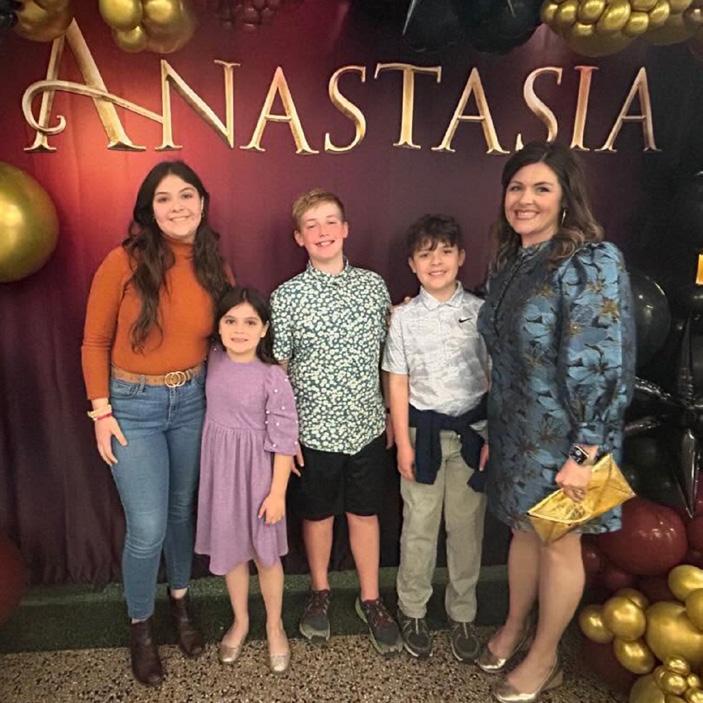
























By Allen Henderson, NATS Executive Director
As some of you read this issue of Inter Nos, the anticipation of spring is on the horizon. Where I live in South Georgia, we have already been tempted by what we call “first spring” and at my house the tulip magnolia tree blossoms with bright purple blooms. Inevitably, as in most years, below freezing temperatures returned this week and the blooms wilted into brown blobs as the tree returns to a somewhat dormant state until a more stable “second spring” occurs.
For nearly 18 years, I have had the honor of celebrating the seasons of change in our profession with you in these columns. We have celebrated our collective successes; mourned the passing of giants in our profession; planted seeds that have blossomed into major initiatives and new programs and products; survived a worldwide pandemic together; and supported future generations of singing artists and teachers; all driven by our collective vision of transforming lives through the power of singing.
In June, I informed our board of directors at our annual board meeting that I would be retiring as executive director effective December 31, 2025, after 18 and a half years of service. As our association moves through this leadership transition, President Alexis Davis-Hazell will appoint a search committee approved by the board of directors and a search will be initiated. You will be hearing much more about this process in the coming days. I have had the privilege of working with some great leaders at all levels of the NATS organization during my time as executive director, and I am confident that the strong leadership currently in place is particularly positioned to lead our association through this transition period and into the next era. I look forward to concluding my career teaching my students and leading some special projects and initiatives at Georgia Southern University. I have had the great fortune to call Georgia Southern my academic home for the past 20 years and have been grateful to my students, colleagues, and the administration for supporting this extraordinary service opportunity. Most of all, I am grateful for the support of my
spouse, in house CPA, and soulmate Ann without whose support none of this would have been possible.
58, NO. 1
PUBLISHER
Allen Henderson, Executive Director, allen@nats.org
EDITOR
Beth Buchanan, Marketing and Communications Manager beth@nats.org
As I put the finishing touches on this column, I am returning from Carlisle, Pennsylvania, where I had the privilege and honor of speaking at the celebration of life service for Joan Frey Boytim, a major presence in our profession for many years who was awarded a NATS Lifetime Achievement Award in 2016. The selfdescribed “little old lady on Glendale Street who teaches people to sing” dedicated her life to teaching voice in her independent studio in her home. A chance encounter with Rick Walters of Hal Leonard at a NATS conference led to the creation of an anthology of music for the voice teacher and that blossomed into more than 60 volumes with over 1 million books sold by 2015. Present at the celebration were scores and scores of past students — from her last high school student, now an undergraduate at Northwestern University, to more “mature” singers throughout her community. Many of her former students are also voice teachers themselves. It was a joyful celebration of a life well lived, a life of service, and a life dedicated to the pursuit of excellence. Voice teaching around the world is better today because of Joan, and her legacy continues to reverberate. May we all adopt the motto Joan adopted later in her life — Aspire to inspire until you expire!

Allen Henderson NATS Executive Director
As we look forward, our NATS National Student Auditions season is shaping up to be a record breaker. In my home region, we will have a record of 490 singers at the Southeastern Region Student Auditions in DeLand, Florida. With the expansion of our audition categories and age ranges, I have seen large numbers in other regions and chapters as well. Soon, all those eligible will be able to register for the national rounds that will culminate in AuditionCon and our live finals at Temple University in
INDEPENDENT TEACHER
ASSOCIATE EDITOR
Cynthia Vaughn, cynthiavaughn@icloud.com
ADVERTISING TEAM advertising@nats.org
DESIGN
Regina Troyer, Carter Publishing Studio
inter nos is the official newsletter of the National Association of Teachers of Singing. It is published two times per year (spring and fall) for all NATS members.
Philadelphia, June 26-28. This weekend will be filled with workshops, masterclasses, and of course student auditions. We invite you to join us. AuditionCon will include an expo where schools and training programs will be present to recruit students and present performance classes for singers in attendance. We hope you will register your school to be in attendance.
This summer we welcome the world of voice teaching to North America as NATS hosts the International Congress of Voice Teachers in Toronto, July 31-August 3. Nearly 200 presenters and performers are on the program, and Toronto offers a vibrant cultural landscape in which to celebrate the global voice teaching profession. Check out the program on our website and register by the early bird deadline of April 1. If you have never attended an ICVT, I encourage you to make an effort to attend while it is in North America.
Throughout all the seasons of my professional life there has been one constant — NATS. I hope the same goes for you. For those just beginning, what I hope will be fulfilling teaching careers, I encourage you to take advantage of the resources NATS provides us all and contribute to its future with your energy and expertise. We are stronger together
and, as we reach out to broaden the tent of our association, our common connection and love of our art form support us and draw us together when the winds of change in other parts of our lives may be turbulent.
As always, I welcome your comments at allen@nats.org

By Cynthia Vaughn, Associate Editor for Independent Voices
I’ve been thinking a lot about what it means to be an independent voice teacher. Typically, independence in our field implies that you are working for yourself as a sole proprietor or small business owner, outside of K-12 or higher education. Independence can be defined as not relying on others for aid or support or not influenced by the thought or action of others, however, that doesn’t really apply to us. As the name of this publication “Inter Nos” advocates, we freely share ideas and support “between or among ourselves.” We are indeed influenced and inspired by our colleagues.

My favorite meaning of “independence” is the definition that is used in mathematics where independent refers to a variable that does not rely on the value of any other variable to determine its value. My sixth grade math teacher would be proud that I remembered this rule, even if I am taking it completely out of context. Applying the logic to our profession, however, your value as an independent voice teacher does not depend on any other variable. Read that again.
Your value as an independent voice teacher does not depend on any other variable.
An independent variable stands alone.
You are the boss. As an independent voice teacher you can create, structure, price, run, market, and decorate your independent studio any way you choose. Some of my colleagues have been teaching independently for decades in home studios, their own commercial studios, and multiteacher studios. Others are teaching independently while also juggling part-time college positions. In recent years, with shrinking university budgets, faculty reductions, arts program eliminations and closures, I’ve seen more academic teachers make the switch to independent teaching. Retired faculty frequently continue their teaching and coaching career in the “private” sector. I say, welcome. How can we help you become your own boss? You know how to teach singing. There are many resources available through NATS, MTNA, and other
professional organizations to teach you the necessary business skills.
An independent variable can be changed freely without affecting other variables in the equation.
Guess what? You can change your mind, your business model, your branding, your tuition, the color of the paint on the walls, or any other variable. You might start your business as a generalist teaching anybody — all ages and all styles, and later shift to specializing in working with a specific type of ideal client. Maybe you have discovered that you don’t really enjoy working with teenagers (and their parents), but you love teaching avocational adult singers or professionals. Do you love working with singer-songwriters, actors, dancers? You might discover that you get a bit bored with one-on-one lessons, but you love the energy and interaction of groupvoice. The variables are endless, and you get to choose your own path with no one looking over your shoulder.

Cynthia Vaughn Associate Editor for Inter Nos CynthiaVaughn@icloud.com
“An independent variable stands alone. You are the boss. As an independent voice teacher you can create, structure, run, price, market, and decorate your independent studio any way you choose.”
In this issue of Inter Nos “Independent Voices,” six NATS members share their varied journeys. Amy Canchola writes about building an independent voice studio that caters to your strengths. Thomas Erik Angerhoffer shares how his martial arts experience has influenced his voice teaching. Marisa Gray Atha explores empathetic connection in the studio — meeting our students as whole humans and knowing where to draw boundaries. Matthew Giallongo talks about how he has navigated the dual roles of voice teacher and musical theatre music director. Leah Partridge envisions a bold model for post-undergraduate voice study for emerging artists and Jen Jimenez interviews NATS International member Sandra Oberoi.
You are valued as an independent, and we want to hear your voice. (No math required.) If you have an idea or a submission for NATS Inter Nos “Independent Voices,” email CynthiaVaughn@icloud.com
Cynthia Vaughn, associate editor for Independent Voices, has been a proud NATS member and independent teacher since 1983. She has been active in leadership at the chapter and region levels, and she was an invited master teacher for the 2020 NATS Intern Program (postponed to 2021 due to COVID).
Before moving to Norfolk, Virginia, in 2022, Vaughn retired from Magnolia Music Studio, the multi-teacher studio she founded and directed in Colorado and Washington from 2008 to 2022. In addition to her independent studios, Vaughn previously taught at Colorado State University, Cedarville College, and Art Connects International. Publications include The Singing Book group-voice textbook and song anthology with co-author Meribeth Dayme. The new 4th edition with editor Matthew Hoch was released July 2024 by Rowman & Littlefield/Bloomsbury Publishing and NATS Books.
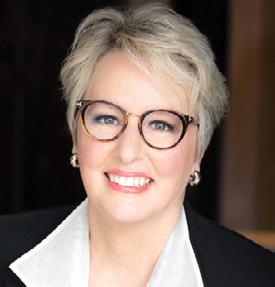
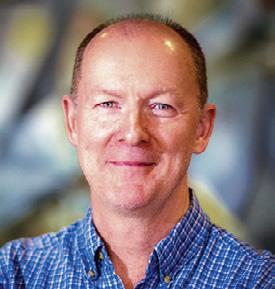
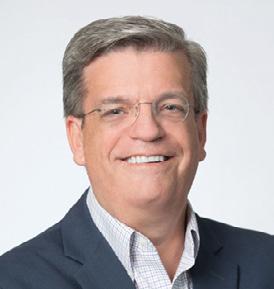
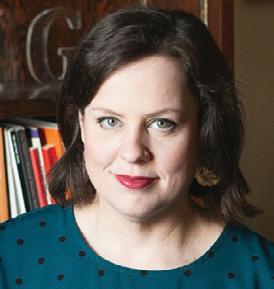

◾ UNDERSTAND the pillars of voice science: physiology, vocal tract acoustics, and cognition
◾ LEARN how to apply science-informed voice pedagogy resources in your teaching
◾ REFRESH your pedagogy course content
◾ ALIGN your courses with the NATS science-informed pedagogy resources
◾ RECEIVE mentoring in teaching
◾ NETWORK with other teachers in the field

THURSDAY, JULY 31, 2025
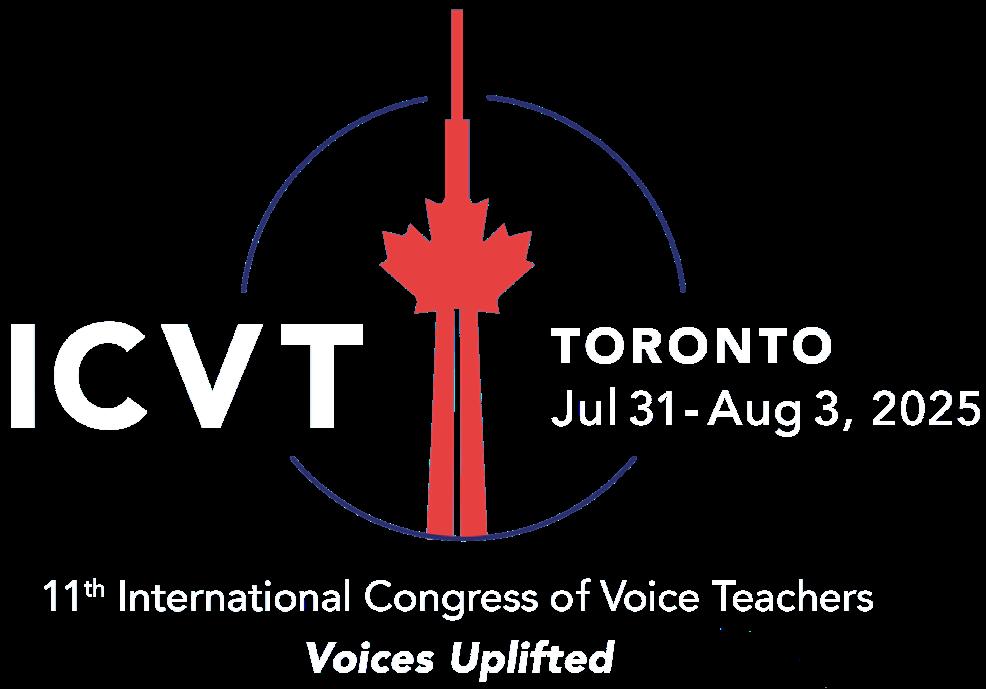
Opening Ceremony & Keynote Address — Voices Uplifted!
10-11:45 a.m. | St. Paul’s Bloor Street - Sanctuary

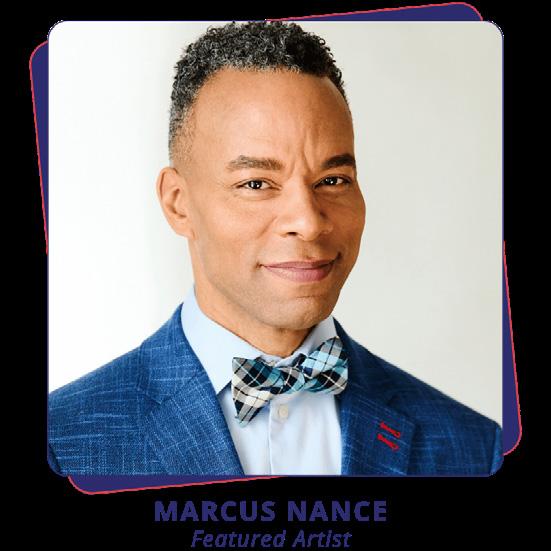

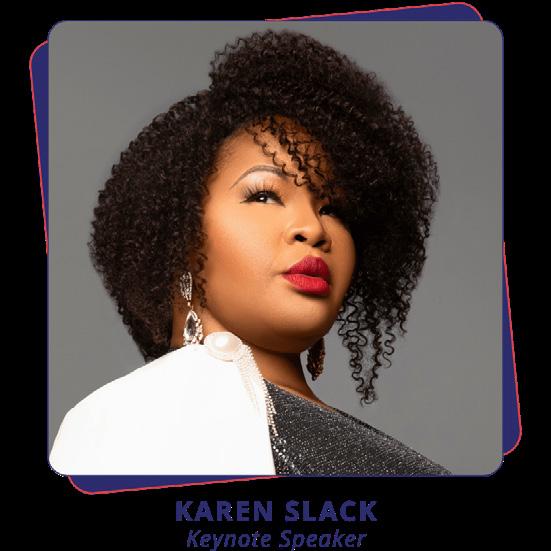
Featuring Marion Newman, Marcus Nance, the Canadian Children’s Opera Company, and Karen Slack
Presiding: Allen Henderson, NATS Executive Director
Welcome to the 11th International Congress of Voice Teachers in beautiful Toronto, Canada. Join us as we lift our voices together to celebrate the rich heritage and splendor of Canadian artistry. The grand opening ceremony features performances by acclaimed artists Marion Newman, Marcus Nance, and the Canadian Children’s Opera Company, culminating in a keynote address by Karen Slack, one of the foremost voices in singing and performance. HOSTED BY:

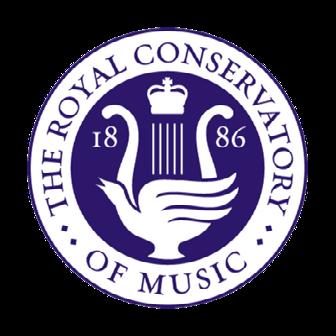
THURSDAY, continued
Bust Out of Your Straight Jacket
12-1 p.m. | St. Paul’s Bloor StreetSanctuary
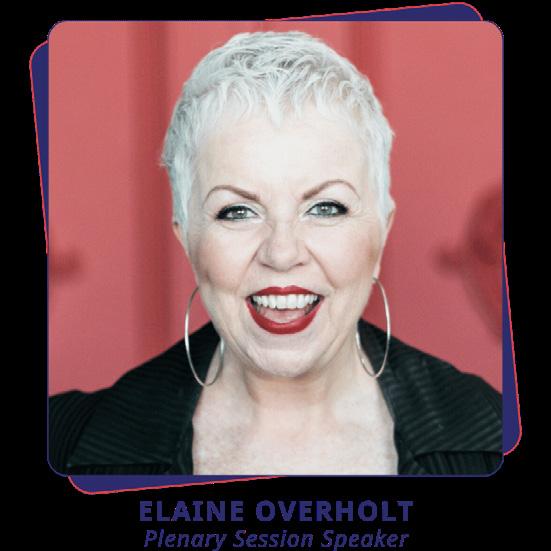
Presented by Elaine Overholt
Are we in denial of what today’s singers need and long for to grow, be passionate, embrace all forms of singing AND have good technique? Are you afraid of tackling pop, musical theatre, jazz, or rock (my, my!) because you worry they’ll damage their voices? Step bravely and passionately into new avenues, expanding and enriching yourself and your students. Trust your gut instinct, push past the fear of new territory and create a new path instead of following old ones. Step into your own spotlight as a teacher so your students can too.
Bust out of your straight jacket, go through the FEAR, and just do it! This is your moment to take a hard left into the unknown. Your students will thank you!
BOOK YOUR ROOM BY JUNE 30!


FRIDAY, AUGUST 1, 2025
Registers – The Piranha-Infested River of Voice Pedagogy
9:30-10:30 a.m. | Chelsea Hotel, Churchill Ballroom
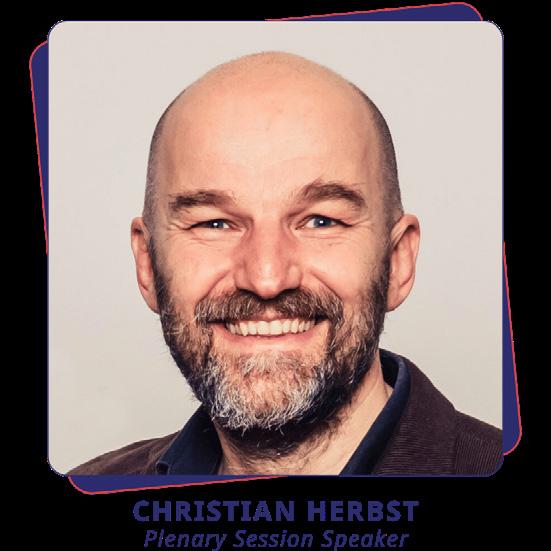
Presented by Christian Herbst
The notion of singing voice registers — first emerging about half a millennium ago — has historically evolved to explain voice production phenomena in classical, operatic and Bel Canto singing. Voice registers can be considered on different levels: kinesthetic/ proprioceptive; auditive/perceptual; and concerning the underlying physiology and physics of the actual voice production. Notably, neither the pedagogical nor the scientific field has reached unanimous consensus about the nature of voice registers even today. This presentation will review the basic physical and physiological aspects of voice production that can lead to different registration events in the voice. It will discuss voice production on a broader scope, including “non-classical” singing styles and animal bioacoustics, and will argue that the “classical” voice registers are special cases of bifurcation events within the framework of nonlinear dynamics. A broader non-linear dynamics approach may be beneficial for voice pedagogy, particularly when considering “non-classical” singing styles like contemporary commercial music. Such an extended approach will consider potential influences of (a) the coupled supra- and subglottal
vocal tracts and (b) other vibrating laryngeal tissues (like ventricular folds, aryepiglottic folds, or even non-human primates’ vocal membranes) factors which are often neglected when discussing vocal registers.
The Transformative Power of Voice: The Legacy of Manuel García II and the Evolution of the Singing Voice Specialist
10:45 a.m.-12 p.m. | Chelsea Hotel, Churchill Ballroom

Presented by Kari Ragan
This plenary session explores the profound connection between voice and healing, tracing the journey from Manuel García II, the pioneering figure in voice pedagogy, to the emergence of the modern-day singing voice specialist. García II’s groundbreaking work laid the foundation for understanding the voice as both a physiological system and a medium for artistic expression. Through this session, we will explore how his legacy has shaped the evolution of the singing voice specialist (SVS). These voice specialists combine artistic training with scientific insight to optimize vocal rehabilitation, restoring health, function, and performance. Attendees will gain insight into the evolution of vocal care, the role of music in healing, and the importance of interdisciplinary collaboration in the ever-expanding fields of voice science, vocal health, and pedagogy.
SATURDAY, AUGUST 2, 2025
Performance Class with Karen Slack
4-5:30 p.m. | Koerner Hall, Royal Conservatory of Music

Presented by Karen Slack
David Eliakis, conference collaborative pianist
ICVT keynote speaker and international sensation, Karen Slack, will work with young artists on diverse repertoire, offering guidance and sharing expertise from her distinguished career. Described by Trilloquy as “not only one of the nation’s most celebrated sopranos, but a leading voice in changing and making spaces in classical music,” Slack brings both excellent artistry and advocacy to the stage. A Philadelphia native, she is a graduate of the prestigious Curtis Institute of Music and the San Francisco Opera’s Merola Opera Program. She has appeared on many of the world’s greatest stages was awarded the 2022 Sphinx Medal of Excellence. Her dedication to advancing the arts extends through her roles as an artistic advisor for Portland Opera, board member for the American Composers Orchestra and Astral Artists, and as a faculty member at the Banff Centre for Arts and Creativity in Alberta, Canada. She was named the Lyric Unlimited Artist-in-Residence at Lyric Opera of Chicago for the 2024/25 season as well as Artist-in-Residence at leading entrepreneurial institution Babson College.
Jane Archibald in Concert
7:30 p.m. | Koerner Hall, TELUS Centre for Performance & Learning
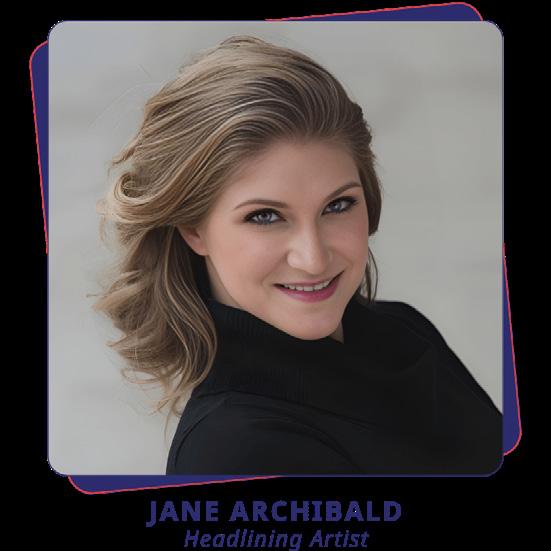
Featuring Jane Archibald, soprano
Experience the extraordinary artistry of Canadian soprano Jane Archibald at stunning Koerner Hall in the TELUS Centre. Renowned for her command of opera’s most relentless tessituras, she regularly performs in prestigious opera houses and concert halls around the globe — from the Metropolitan Opera to Vienna State Opera. After beginning her career in her native Canada, she became an Adler Fellow with the San Francisco Opera and went on to debut many coloratura roles. Known for her vocal mastery, she has brought iconic characters such as Zerbinetta, Salome, Daphne, Mathilde, Donna Anna, Konstanze, and Lucia, among many others, to life with finesse. A Juno Award winner and acclaimed recording artist, her most recent work includes the release of Bernstein’s Candide with Marin Alsop and the London Symphony Orchestra. Don’t miss this evening celebrating the brilliance and expressive power of one of today’s most captivating voices. Ticket required. Open to the public.
SUNDAY, AUGUST 3, 2025
CLOSING CEREMONY & FINAL PLENARY SESSIONS
Inspired Not Bound: The Promise of ScienceInformed Voice Pedagogy
5-7 p.m. | Trinity-St. Paul’s United Church
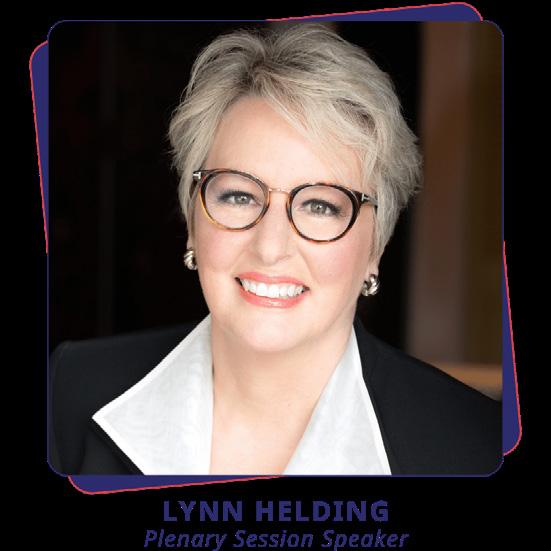
Presented by Lynn Helding
Lynn Helding defines Science-Informed Voice Pedagogy in her upcoming book
The Art of Vocology, as “A type of hybrid singing voice pedagogy that unites science and art by researching current voice science, translating it, combining it with extant historic voice knowledge, and transmitting it to singers. ScienceInformed Voice Pedagogy is informed by science, but not bound by it.” In a previous presentation at this congress, Helding first explored the question of “Why Facts Do Not Always Change Minds” pivoting to this epilogue, “Inspired Not Bound,” in which we are invited to imagine the future of voice pedagogy in a post-pandemic landscape based on the premise that what is known and considered true does not begin nor end with science, but takes account of the full scope of human experience.
SUNDAY, continued
Our Voices Alive — Our Voices Uplifted!
5-7 p.m. | Trinity-St. Paul’s United Church
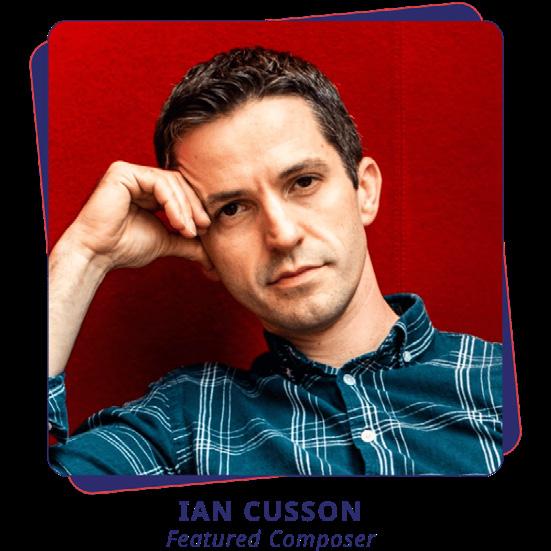
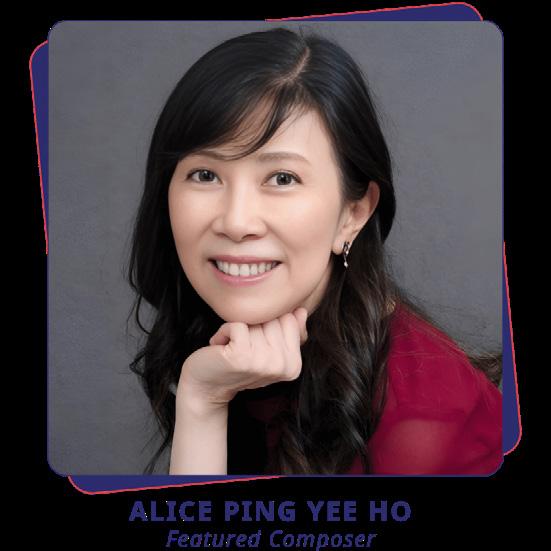
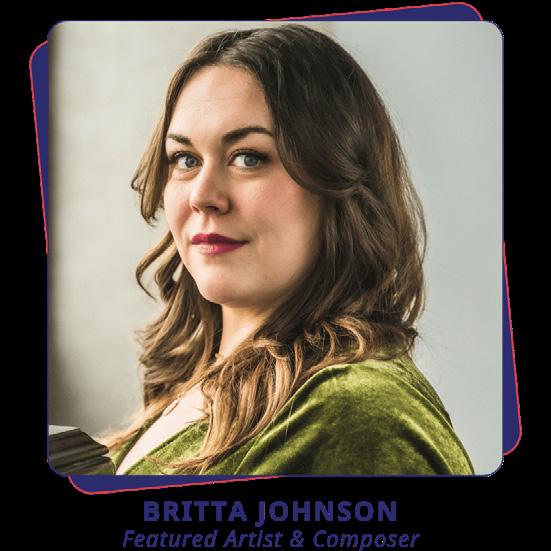
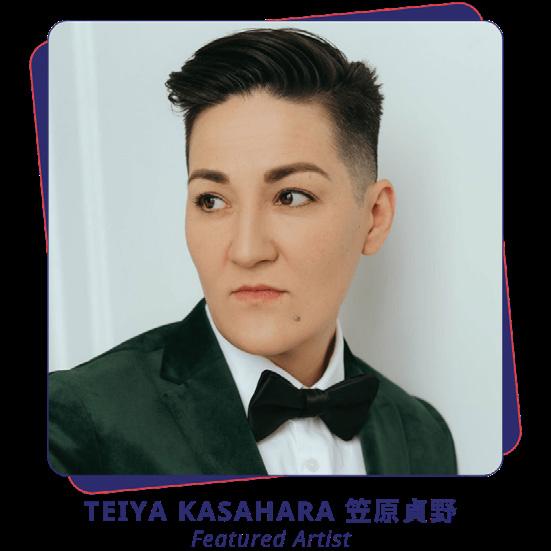

Featuring Ian Cusson, Alice Ho, Britta Johnson, Teiya Kasahara, and Cecilia Livingston.
Moderated by Krisztina Szabo
In this inspiring panel, leading Canadian composers and creators join together with their VOICES UPLIFTED. These visionaries are immersed in all that is new, hybridized, and re-envisioned. Never before have access, artistry, advocacy and agency been so powerfully activated and united. We invite you to take part in our “singing revolution” and be empowered to create your own music, forge your own lane forward, and embrace the possibilities of what is ahead.
ICVT SPONSORS
Grand Sponsor

Bronze Sponsors


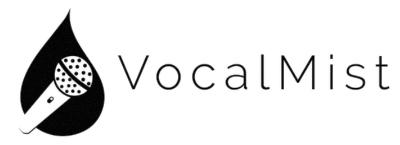


Coffee Break Sponsors
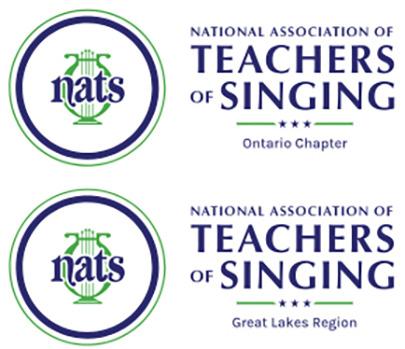

The excitement continues with cash prizes after two national levels of auditions to be held June 26–28, 2025, at Temple University in Philadelphia, Pennsylvania.
Audition in YOUR Region’s NSA Event. Singers placing 1st through 5th in each national qualifying category advance to National Preliminary Online Screening.
NATIONAL ONLINE SCREENING
Friday, April 11, 2025 – Deadline for online digital submissions.
SEMIFINALS AND FINALS
Top 15 student-singers in national Semifinals
Top 3 in national Finals
Cash prizes awarded to 1st, 2nd, and 3rd place ELIGIBILITY
All singers ages 30 and younger on September 1, 2024. (no lower-age limit)


TOTAL PRIZES: MORE THAN $85,000
FOR 2024–2025! See NATS.org for full details.

See complete regulations and repertoire requirements at
FIRST PLACE, SECOND PLACE and THIRD PLACE prizes will be awarded in each category.

‘Love Songs from a Third Floor Walk-Up’ wins this year’s top prize.
The National Association of Teachers of Singing (NATS) is delighted to announce Raphael Fusco as the first prize winner of the 2025 NATS Art Song Composition Award for his work, Love Songs from a Third Floor Walk-Up.
Fusco receives a $2,000 prize and his composition will be performed at the 59th NATS national conference in San Antonio, Texas, (July 3-7, 2026).
Love Songs from a Third Floor Walk-Up is a set of five songs for medium high voice and piano with text by Caitlin Vincent:
I. Moving in
II. Compromise
III. Just Another Day
IV. Ossobuco
V. Home
“I am over the moon to receive this prestigious award,” Fusco said. “Art song is thriving in the U.S. right now, with so many gifted composers and singers, so being recognized as a leader in this genre is a deep honor.”
Fusco is currently participating as a mentee in the 2024-25 NATS Mentoring Program for Composers, mentored by Scott Wheeler. He wrote the final song, Home, as the commission for the NATS program and it will be part of the culminating digital concert later this year.
“Love Songs from a Third Floor Walk-Up follows one person’s journey in learning to navigate the challenges of living with a partner,” Fusco explained. “From arguing over wall colors to dealing with each other’s annoying habits and managing cooking disasters, the protagonist ultimately realizes that perfection is simply cuddling up with their loved one and enjoying each other’s company on a broken IKEA couch.”
Fusco originally reached out to lyricist Caitlin Vincent to work on a new opera libretto, but she suggested they test the waters with a song before diving into a large project. Out of

that collaboration, the song Just Another Day was born first and then the others followed.
“Caitlin is one of the most in-demand lyricists of our time,” Fusco said. “And when you read her work, you immediately understand why. Her writing is authentic — no frills or gimmicks — funny yet lyrical, emotionally engaging, and full of contemporary imagery we can all relate to. She’s incredibly intelligent and a trained singer herself, which means she knows how to craft text that sings — a rare gift.”

The two are continuing to work together on a new opera. Fusco also wanted to thank many others for their continued support.
“I am incredibly grateful to Lori Laitman and NATS for creating this opportunity for composers of art song,” he added. “From my first honorable mention in 2010 for Unsolicited Advice to second prize in 2023 for Quarantine Camp, and now first prize, this competition has continually pushed me to strive for excellence and has allowed me to create some of my strongest work. I’d like to thank the amazing sopranos Alexis Merry, Johanna Will, Julia Johnson, and Katharine Dain, who lent me their talents and joined me in the sandbox to help develop this cycle. It’s also the culmination of my doctoral research on emotional resonance and empathy in vocal music at the Kunstuniversität Graz, so I would be remiss not to thank my advisors — Tom Cipullo, Michael Edgerton, Ulf Bästlein, and Deniz Peters — for their invaluable guidance. Finally, my deepest thanks go to my wife and muse, mezzo-soprano Eva Maria Summerer, who keeps me inspired and searching for the best in life every day.”
Erik Franklin received second prize and $1,000 for The Ballad of Maurice Connor, a set of four songs for tenor and piano featuring lyrics by the composer from Thomas Crofton
Croker’s “Fairy Tales and Traditions of the South of Ireland (1828).” Maria Thompson Corley received honorable mention for The Colour of Joy, a cycle of four songs for soprano and piano featuring text by the composer, Kanika Ambrose, and Christene Browne.
NATS is committed to keeping the composers and their submissions anonymous in the adjudication process as to evaluate only the music itself. Preliminary adjudicators Jodi Goble (2024 winner), and Ericsson Hatfield (2022 winner) selected seven finalists from 46 submissions. Composers Jeffrey Ryan (2021 winner) and Lori Laitman served as the final adjudicators.
The NATS Art Song Composition Award, established in 1983, continues to inspire and encourage the creation of quality vocal literature. American composer Lori Laitman generously sponsors the first and second cash prizes, and she provides winners with a two-year paid NATS membership. The competition is open to any composer, professional or student, whose submitted work meets the prescribed requirements.
Past winners have included Jodi Goble (2024), Rene Orth (2023), Ericsson Hatfield (2022), Jeffrey Ryan (2021), Kurt

Italian-American composer, keyboardist and conductor
Raphael Fusco has been hailed by the international press as “a lively player and fine improviser” (Los Angeles Times), “one of the most outstanding composers of his generation (El Mundo),” and “a leader in the opera world today” (Operawire).
His genre-crossing compositions for voice, chamber ensembles, historical instruments, orchestra, opera and theater have been commissioned by Chamber Orchestra of Philadelphia, Cecilia Chorus of New York, I Cantori New York, Hartford Chorale, Opera Lucca, Classic Lyric Arts Festival, The German Forum, and members of the New York Philharmonic and Metropolitan Opera Orchestras. He has collaborated with world-class artists such as GRAMMY Award-winning saxophonist Branford Marsalis, countertenor Nicholas Tamagna, conductors Dirk Brossé, Mark Shapiro and many others. His works have been
Erickson (2020), Philip Lasser (2019), Benjamin C.S. Boyle (2018), Matt Boehler (2017), David Conte (2016), Robert Patterson (2014), Melissa Dunphy (2012), and David Sisco (2010). All previous winners are listed on NATS.org.
Applications for the 2026 Art Song Composition Award open June 1, 2025, with a submission deadline of December 1, 2025. The program is led by Carol Mikkelsen, coordinator, and Lori Laitman, advisor.
2025 Winners and Finalists:
• First Place: Love Songs from a Third Floor Walk-Up by Raphael Fusco
• Second Place: The Ballad of Maurice Connor by Erik Franklin
• Honorable Mention: The Colour of Joy by Maria Thompson Corley
Additional Finalists:
• In the Great Night: Eight Tribal Lyrics in English Translation by Jay Decker-Drane
• luna permit by Cecilia Livingston
• Saltblue & Other Missing Memories by Mikeila McQueston
• Goblin Market by Theo Popov
premiered in Carnegie Hall, Kimmel Center Philadelphia, Lincoln Center, St. Bavo Kerk Haarlem, Gaudì’s Casa Milà in Barcelona, Église de Saint Séverin in Paris, Dvorak House in Prague and Teatro Titano in San Marino.
Fusco has received awards from the American Prize for Music, NATS Art Song Composition Competition, Fyfe Choral Composition Competition, Aliénor International Harpsichord Competition, as well as grants from the National Italian American Foundation and Exploring the Metropolis. His compositions are published by Universal Edition Vienna, Verlag Ries & Erler Berlin, Hinshaw Music, and Prima la Musica.
A native of New Jersey, Fusco studied at the Mannes College of Music, Manhattan School of Music, G. Verdi Conservatory of Turin, Paris Schola Santorum, and Vienna Konservatorium. He holds a doctorate in artistic research from the University Performing Arts in Graz, Austria, where his dissertation investigated expressive agency and empathy in vocal composition. Learn more at raphaelfusco.com

Composer and clarinetist Erik Franklin balances a vibrant, varied career on and off the stage. He has given concerts in nearly all 50 states and throughout Europe, performing for audiences large and small in venues from veterans’ homes to Carnegie Hall. A former member of the United States Army Field Band (Washington, D.C.), Franklin now performs as a soloist and chamber musician across the country as a member of the Ann Street Trio and the Heartwood Duo.
Franklin has a penchant for writing lyrical, expressive melodies where performers’ sensibilities can shine, to the delight of musicians and audiences alike. His works have made a mark in the vocal music world, garnering awards from the National Association of Teachers of Singing

Maria Thompson Corley was born in Jamaica and raised in Canada. She has appeared as a solo or collaborative pianist on radio, television, and/or concert stages in North and Central America, the Caribbean, Bermuda and Europe, performing with artists like Metropolitan Opera soprano Priscilla Baskerville, Juno Award-winning clarinetist James Campbell, Grammy Award-winning clarinetist Doris Hall-Gulati, Grammy-nominated baritone Randall Scarlata, renowned countertenor Darryl Taylor, and members of the New York Philharmonic and Philadelphia Orchestras. Venues include the Smithsonian Museum of African American History, Liszt Academy, Weill Hall, and the Epidaurus Festival in Cavtat, Croatia. Her performances as soloist with orchestra include engagements with the Tallahassee Symphony Orchestra under the baton of Gunther Schuller. She has also performed and recorded with the Philadelphia-based Black Pearl Chamber Orchestra, directed by Jeri-Lynne Johnson.
Thompson Corley’s undergraduate work was completed at the University of Alberta in Edmonton, where she
and New York City’s songSLAM festival. His instrumental works have been commissioned by ensembles like the Interlochen Arts Academy Band and the U.S. Air Force Academy Band. Recent performances include the world premiere of “The Old Road” in May 2024, which featured Franklin as clarinet soloist alongside the Greenville (SC) Symphony Orchestra.
A passionate and experienced educator, Franklin formerly served on the faculty at Towson University and the SC Governor’s School for the Arts and Humanities. He and his husband founded the Patterson Park Academy of Music in 2021, which provides music programming for over 300 children and adults in east Baltimore. Every summer, he directs the Indiana Clarinet Experience — a pre-college music camp he co-founded in 2014. Learn more at erikfranklin.net
studied with Alexandra Munn, a pupil of Irwin Freundlich. Corley received both master’s and doctorate degrees in piano performance from the Juilliard School, where she was a student of renowned Hungarian pianist, Gyorgy Sandor. The only pianist admitted into Juilliard’s doctoral program for the period of two years, she was also chosen to represent her alma mater on a tour of Central America, where she gave performances and master classes.
Aside from being an accomplished pianist, Corley is a voice actor, an award-winning poet, and an author who has contributed to Broad Street Review and blogged for Huffington Post. Her novels include Choices (Kensington), Letting Go (Createspace) and More Than Enough (Kindle Vella). Her poems and short stories have appeared in Chaleur, Fledgling Rag, Kaleidoscope, Midnight and Indigo, and The Write Launch. Corley is also half of Duo Chiaroscuro (with Sara Male, cello). Their endeavors include “Silence Optional” concerts for people on the autism spectrum, or others who can’t attend classical concerts because of difficulties with remaining absolutely still. Learn more at mariacorley.com
Sixteen early-career voice teachers and collaborative pianists to gather May 20–30, 2025.
The National Association of Teachers of Singing (NATS) is pleased to announce the 16 individuals selected for the 2025 NATS Intern Program, an immersive experience designed to enrich early-career voice teachers and collaborative pianists.
Held May 20-30, 2025, at the University of Louisville in Louisville, Kentucky, this program pairs participants with veteran master teachers to foster a dynamic exchange of ideas and techniques, helping attendees return to their studios with enhanced teaching and coaching skills.

Representing eight NATS regions — Central, Great Lakes, MidAtlantic, Mid-South, North Central, Southeastern, Texoma, and West Central — the 2025 class includes 12 voice teachers (from both independent and academic settings) and four collaborative pianists.
Guiding the voice interns will be master teachers Justin John Moniz, 2025 Ellen Faull Master Teacher, (NYU Steinhardt), Sandra Oberoi (Harmony - The Music School), Amelia Rollings Bigler (Coastal Carolina University), and Noel Smith, 2025 William Vessels Master Teacher, (Noel Voice Studio). The collaborative piano interns will work with Rachelle Jonck (Bel Canto Boot Camp). Katherine Calcamuggio Donner of University of Louisville will serve as the local, on-site coordinator, and Tana Field of Murray State University is the vocal literature liaison.
Diana Allan, director of the 2025 NATS Intern Program and immediate past president of NATS, is impressed with

this class, highlighting their diverse backgrounds and teaching contributions.
“This outstanding group of early-career voice teachers and collaborative pianists, representing eight NATS regions, embodies talent, dedication, and a passion for excellence in musical artistry,” Allan said.
“This group includes active performers and scholars who are teaching in independent studios, college programs, or high school programs. We look forward to the incredible work they will accomplish with their distinguished Master Teachers through this transformative program. This cohort is another in the 34-year legacy of the NATS Intern Program — making a lasting impact on the lives of these NATS members and their students. Congratulations to this year’s interns and to the many Intern Program alums and supporters who make this program possible!”
NATS interns frequently reunite at the biennial NATS conferences to maintain the close professional bonds formed during the program. At the 2024 NATS national conference in Knoxville, alumni gathered for an intern reunion event and the tradition will continue at the 2026 national conference in San Antonio. Since its founding in 1991, the NATS Intern Program has built an alumni network of more than 300 voiceteaching professionals.
Thanks to generous gifts from our supporters, the program is offered at no cost to interns. We are thrilled to share the newly endowed status of the Ellen Faull Master Teacher

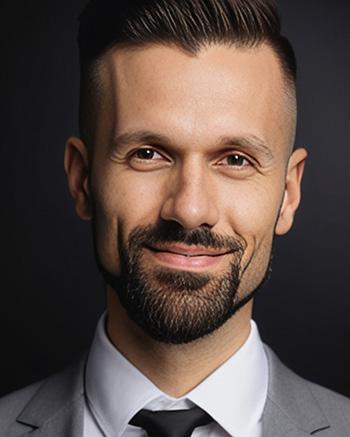
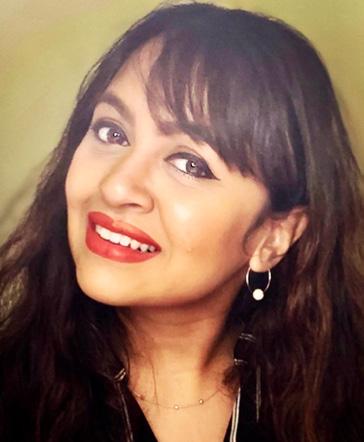
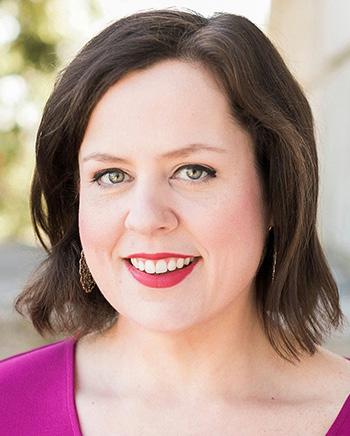
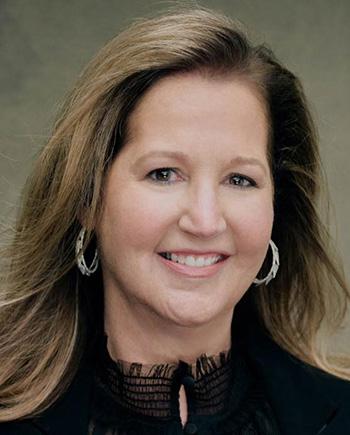

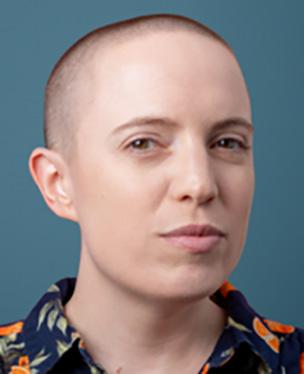


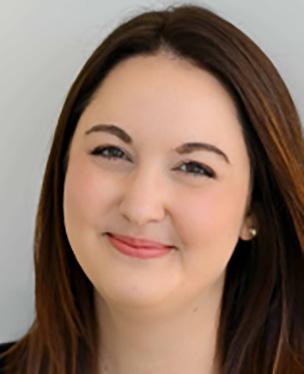

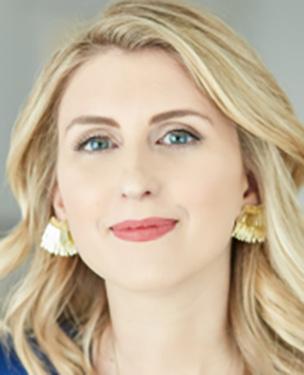
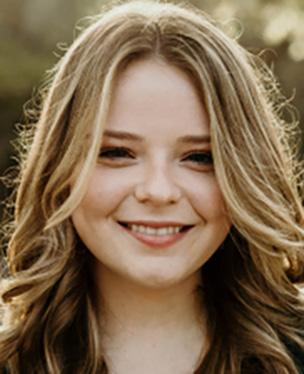
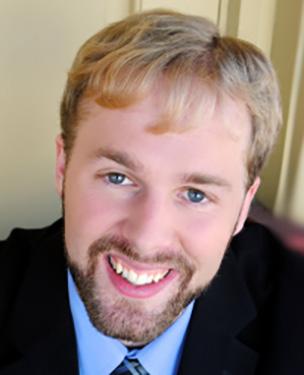



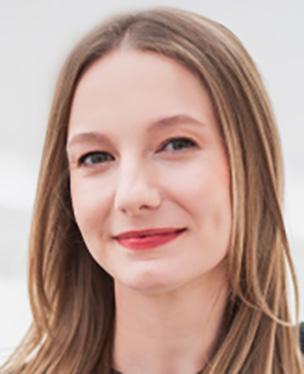


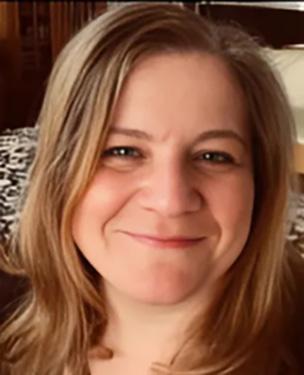
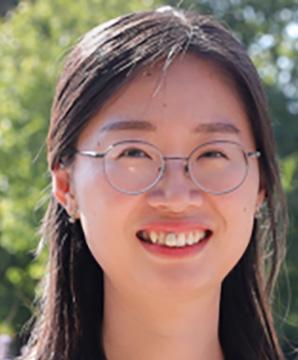
Fund thanks to the steadfast contributions of Dr. Kari Ragan and numerous NATS members. Stay tuned for additional information highlighting this outstanding achievement in honor of Dr. Ellen Faull.
Contributions from several funds and grants, including the William “Bill” Vessels Endowment, the James McKinney Fund, the Barbara Doscher Fund, Ellen Faull Master Teacher Endowment, the NATS Intern Program Grants: Established by the 2021 Master Teachers, the Clifton Ware Group-Voice Pedagogy Award, as well as the NATS Foundation Heritage Fund help sustain this vital program.
To make a gift supporting the NATS Intern Program, please contact NATS Development Director Jen Jimenez.
Schools or facilities interested in coordinating/hosting a future NATS Intern Program can contact the NATS past president for details and facility requirements.
The NATS Intern Program provides an exceptional training experience for early-career voice teachers and collaborative pianists. By pairing interns with experienced mentors, the program fosters a vibrant exchange of ideas and techniques, improving teaching and coaching skills. Learn more by watching the NATS Intern Program playlist on YouTube
The program is held annually, and application materials for the 2026 program will be available in late summer 2025.
By Kevin Wilson, VP of Workshops
From January 4th to 8th, 2025, the National Association for Teachers of Singing and the National Association for Teachers of Sing hosted a joint Winter Workshop in beautiful Savannah, Georgia. This event took place at the historic Desoto Hotel in downtown Savannah.
Pre-workshop activities included a tour of the film sets at the Savannah College of Art and Design (SCAD) and a networking meet-andgreet at District Live, a music venue in Savannah’s Plant Riverside District.
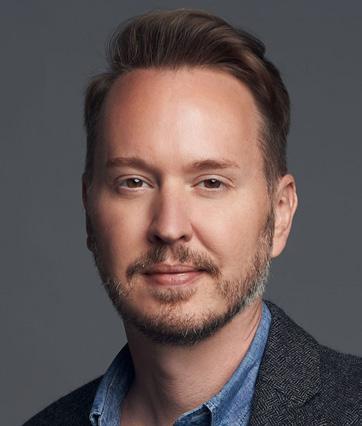
At the welcome luncheon, we received a warm greeting from Isai Jess Muñoz, President of NOA; Alexis Davis-Hazell, President of NATS; Kirk Severtson, Executive Director of NOA; and Allen Henderson, Executive Director of NATS. Following this, our keynote speaker, Tomer Zvulun, General and Artistic Director of the Atlanta Opera, took the stage. Tomer spoke eloquently about the power and strength of innovation in opera today, emphasizing that we must be creative and adaptive in our ever-changing landscape to tackle modern challenges by making bold choices that enable our art to thrive.
Attendance was strong, and enthusiasm was high, from the first day’s panel that showcased numerous Savannah arts organizations to the Collegiate Opera Scenes finals, the annual NOA Vocal Competition, and a variety of plenary sessions, workshops, and poster presentations. A highlight of the workshop was the production of Bessie and Ma by
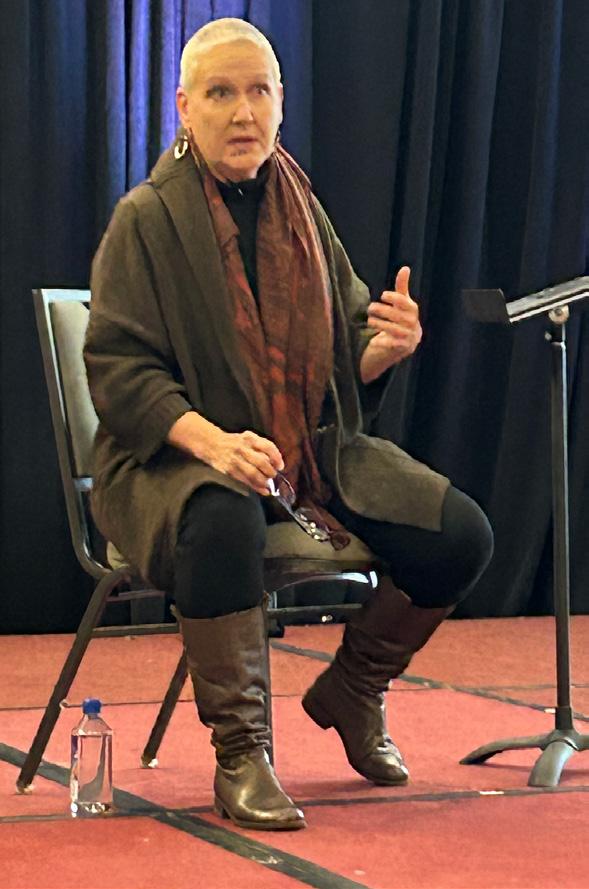
Douglas Buchanan and Caitlin Vincent, winners of the Dominic Argento Chamber Opera Competition.
Several NATS members presented at the joint conference, including a plenary session on “Building Global Connections for Young Voices Through Singing and Song,” “All Community Voice Organizations at the Table,” and “One Voice: Cultivating Flexible Voices for a Variety of Opportunities.”
The NOA Lifetime Achievement Award was presented to Erie Mills, while Legacy Awards were awarded to Florence Quivar as well as long-time NATS member and 2019 NATS Mentor Teacher Mary Henderson Stucky.
The conference building team fostered an excellent environment and a strong collaborative spirit. This was my first workshop as the VP of Workshop for NATS, and working alongside Shelby VanNordstrand, NOA VP Conferences, and Kelly Balmaceda, NATS Director of Events and Programs, provided a great enriching experience and an inside view of what is possible for workshops with NATS, as well as the future planned collaborations between NATS and NOA.
Many members of the NATS national board of directors attended, promoting lasting relationships between our organizations that serve many of the same constituents. Overall, participants felt that the collaboration between our organizations was a significant success in connecting, networking, and working together to achieve our conference mission: Build Together, Curating Tomorrow!
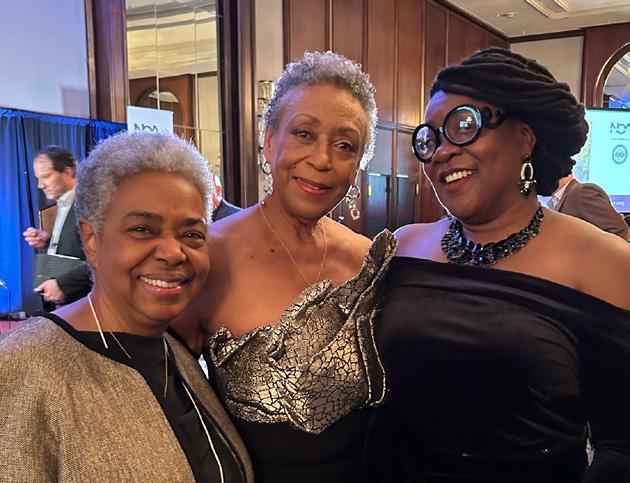
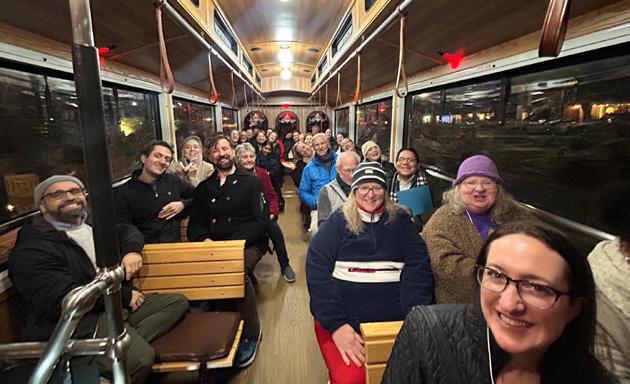
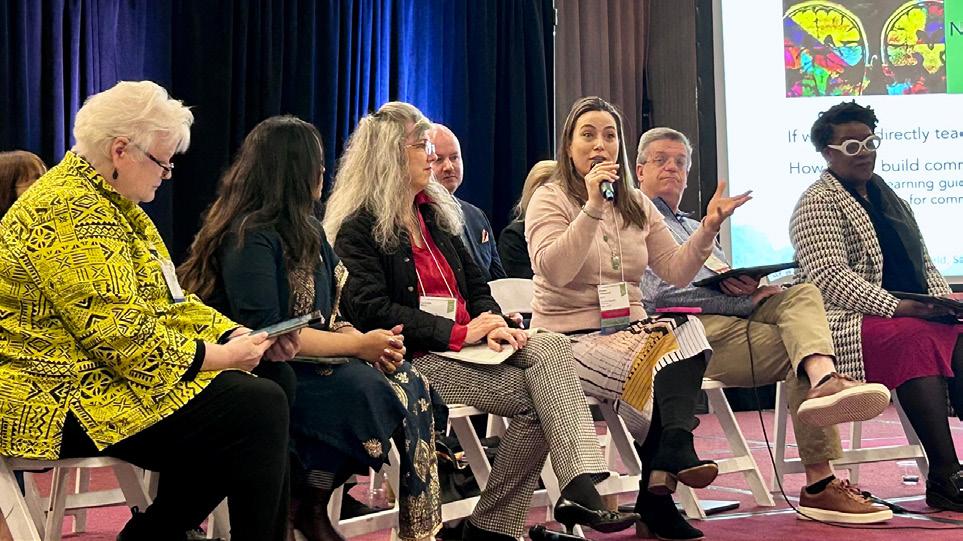
FIRST PRIZE
$50,000 OVER IN CASH ANDPRIZES!OTHER
SECOND PRIZE
January 2026
(as part of the NATS Winter Workshop)
OVER $13,000 IN CASH AND PRIZES:
• $5,000 Cash
• A $4,000 scholarship to attend the American Institute of Musical Studies (AIMS) in Graz, Austria
• $1,000 Gift Certificate from Hal Leonard Corporation
• Solo recital at the NATS 59th National Conference in San Antonio, Texas, July 3–7, 2026
OVER $6,000 IN CASH AND PRIZES:
• $4,000 Cash
• $2,000 Scholarship to attend AIMS in Graz, Austria
• $500 Gift Certificate from Hal Leonard Corporation
• Age 21–35 on September 8, 2025
• Must be a member of NATS (Professional or Emerging Professional in good standing) OR coached for at least one year by a current NATS member (Professional or Emerging Professional)
Generous monetary awards sponsored by the Foundation Heritage Fund of the NATS Endowment. Scholarships to AIMS in Graz, Austria are awarded to remaining semifinalists.



Seeking out and promoting the best emerging talent in the field.
OVER $15,000 IN CASH AND OTHER PRIZES! Foundation
1ST PRIZE
$10,000
Florence Birdwell Award
PLUS a concert at the next NATS National Conference, and $1,000 gift certificate from Hal Leonard Corporation.
2ND PRIZE
$2,500
Linda J. Snyder Prize
PLUS a $500 Gift Certificate from Hal Leonard Corporation
3RD PRIZE
$1,000
Louise Lerch Prize 4TH PRIZE
$750
Bill Hayes Prize
Online Auditions – Fall 2025
In-Person Auditions (NYC) – Fall 2025
Approximately 24 singers will advance to the semifinal round in New York City.
January 2026 in New York City (as part of the NATS Winter Workshop)
All singers age 22 – 30 as of September 15, 2025 Reduced entry fee for students of NATS members. Adjudicators at all rounds will include casting agents and managers from the top agencies in the industry in addition to veteran performers, coaches, and teachers.

Heritage Fund of the NATS Endowment

By Amy Canchola
Running an independent voice studio can be a deeply rewarding venture, combining your passion for music, performance, and teaching. However, in such a competitive field, success depends on how well you can distinguish your studio from others while playing to your personal strengths. Whether you’re a seasoned professional or just starting out, tailoring your studio to reflect your unique skills, values, and expertise will attract students who resonate with your style, making your work both enjoyable and impactful. Here’s how you can create an independent voice studio that thrives by leveraging your strengths.

The first step in building a studio that aligns with your strengths is to take stock of what you do best. This process involves both introspection and practical evaluation that will help you identify your ideal client and find “your people.”
• Assess Your Strengths: Consider the aspects of vocal training that excite you most. Do you excel in classical techniques, contemporary styles like pop and jazz, or musical theater? Are you particularly skilled at working with beginners, advanced students, or young children?
• Find Your Niche: Once you’ve identified your strengths, pinpoint your niche. This could mean focusing on a specific genre (e.g., opera or rock vocals), demographic (e.g., kids, teens, or adults), or specialty (e.g., performance anxiety coaching, audition preparation, or vocal rehabilitation). Having a clear niche helps you position your studio as the go-to place for a specific type of training, which can make your marketing efforts more focused and effective.
• Turn Your Perceived Obstacles Into Assets: In this context, I think about the fact that I have four busy kids at home. When students come to their lesson, they are not entering a museum. The house may not be white glove-ready, there may be occasional interruptions, and we may need to reschedule due to a choir concert or baseball game. However, families with children seem to love this because they can trust their children are safe, happy, and well-loved in addition to being motivated and well-trained. Instead of being self-conscious about clutter,
noise, or schedule adjustments, I can attract students who thrive in comfortable homes with vibrant families and flexible scheduling. Identify what you have going for you and accentuate this message.
Your studio should reflect your strengths and values, so it’s important to craft a vision that aligns with who you are as a teacher and artist.
• Define Your Philosophy: Think about your teaching philosophy. What are the core values or non-negotiables in your studio? Defining your philosophy will also help you attract the demographic of students who will thrive under your tutelage.
• Set Goals for Your Studio: Decide what success looks like for your studio. Are you aiming to train professional singers, nurture hobbyists, or inspire a love of music in young students? Setting clear goals ensures that your studio remains true to your strengths and intentions.
Your studio environment plays a significant role in how students perceive you and their learning experience.
• Create a Welcoming Space: Whether your strengths lie in nurturing confidence or challenging advanced singers, design a studio that reflects your approach. If you’re nurturing, keep your space warm, inviting, and relaxed. If you cater to professionals, create a space that feels polished and performance-ready.
• Current Technology: If you’re tech-savvy, incorporate tools like digital audio workstations, recording equipment, or virtual learning platforms. Offering online lessons or using apps for vocal exercises can set you apart and appeal to a broader audience. Advanced use of technology such as recording equipment, acoustic visibility software, or spectrogram analysis may be what sets you apart from other studios if these are your strengths.
• Tangible Items: Love voice science and cater to students who want to know “why”? Have books, models, and demonstrations available. If you have young students
or neurodivergent clients, manipulatives or fidget toys may be useful.
Your marketing should communicate what makes your voice studio unique. Potential students should immediately understand why your studio is the right choice for them.
• Create a Strong Brand: Invest in a branding workshop or marketing course that helps you identify ideal clients, design a logo, host a website, match colors, solidify studio core values, and be clear on what your brand represents.
• Leverage Testimonials and Success Stories: Highlight student achievements that showcase your expertise. If you’ve helped students land roles in productions, win competitions, or overcome vocal challenges, share these stories in your marketing materials. Ask students to share their testimonials for your marketing but also leave Google reviews.
• Use Content Marketing: Share your knowledge through blogs, videos, or social media posts. For example, if you’re an expert in vocal health, create a series of tips on maintaining a healthy voice. If performance coaching is your strength, share videos on stage presence or audition techniques.
• Be Visible: Whenever possible, I attend my students’ performances, purchase ads in their playbills, tag or share their achievements on social media, and let them know I am always rooting for them. Nothing is more effective for studio growth than happy clients and their referrals.
Your authentic self, personality, and teaching style is a keyfactor in attracting and retaining students.
Be Authentic: Let your personality and teaching strengths shine through. If you’re naturally encouraging and patient, focus on creating a supportive environment. If you’re detailoriented and disciplined, set clear expectations and goals for your students. I aim to remember student’s auditions, competitions, or college admission result dates and follow up with them to ask how it went. This “high touch” element is one of my studio’s strengths.
What are some of your strengths?
Some of my strengths relating to teaching include the great trust and rapport I build with my students, my commitment to being a lifelong learner, and my ability to empower my students to believe in themselves.
What are your specialized niches?
My niche(s) is probably collegiate-track high school students. I love helping students sharpen their audition skills and connecting them with my network of colleagues. As far as repertoire, art song, Mexican canciones, and musical theatre are my strengths.
What is your teaching philosophy?
In my office, I have a sign that says, “those who wish to sing always find a song”. I think that translates to everyone has something to say and my job is to help them find their voices. On social media, I usually use the hashtag #keepsinging. To me, this represents perseverance- just keep working, keep leveling up, and keep showing up for yourself.
What are your goals for your studio?
My goal for my studio is to offer the highest quality instruction to all students looking to sharpen their skills and find their ideal voice whatever that may be for them. I want to foster growth and excellence while maintaining a loving, supportive environment.
What are some ways that you create a welcoming space for your students?
I think I do a good job making students feel “seen.” I send good luck texts before an audition, send follow-up communication after they’ve performed somewhere, I try to attend performances, and when offering critiques, I make sure the student knows what they’re doing well, not just where there is room for improvement.
What kind of technology or equipment do you have/ use in your studio?
I have a baby grand piano, several computers, a digital audio workstation, microphones, speakers, and several apps and music subscriptions.
Adapt to Your Students’ Needs: While it’s important to lean into your strengths, be flexible enough to adapt to different learning styles. For example, if you’re great at technical training but have a student who thrives on creativity, incorporate elements of improvisation or play into lessons. Don’t be afraid to try new things or release unrealistic expectations. Knowing your students and developing relationships will make you a better teacher because you will know how they thrive and therefore curate their lessons to meet their specific needs.
To maintain your edge and continue catering to your strengths, invest in your own growth as a teacher and artist.
• Stay Informed: Attend workshops, conferences, and masterclasses to stay updated on the latest vocal techniques and teaching methods. You will be set apart from competitors by offering the best instruction.
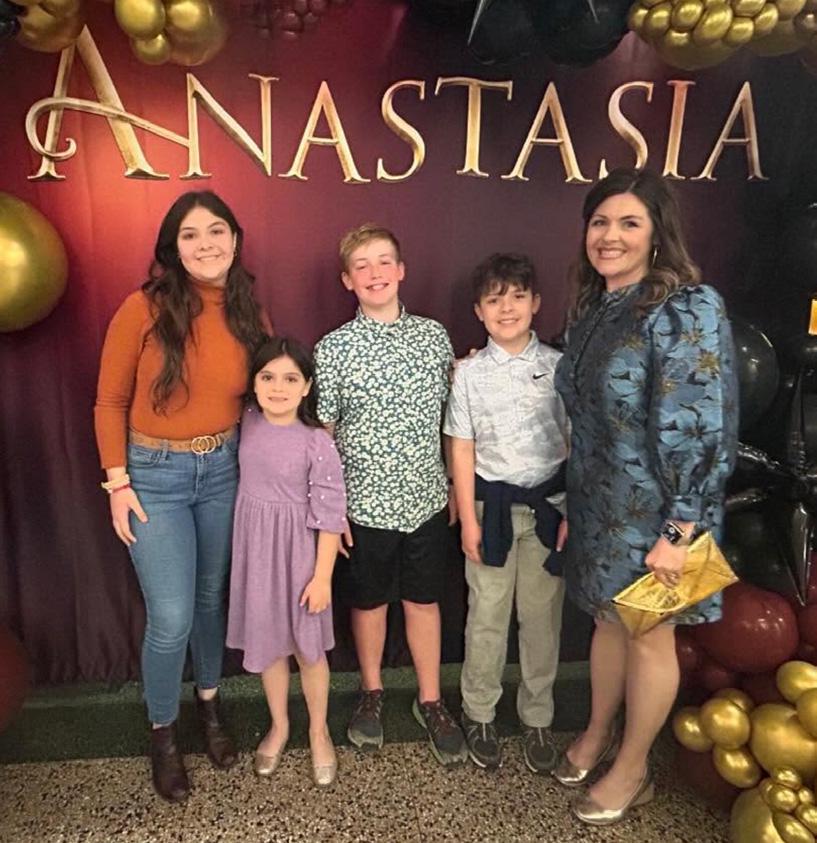
• Network with Other Professionals: Collaborate with other voice teachers, performers, and industry professionals to learn new approaches and stay inspired.
• Join Professional Organizations: NATS, PAVA, MTNA or other professional organizations allow for networking, continuing education, and potential funding for independent studios through grants and scholarships.
Your ability to build strong relationships with your students is one of your greatest assets. As I mentioned, word-ofmouth is my strongest marketing tool. I also foster a feeling of belonging in the studio. I strive to make my students feel “seen” by choosing repertoire that fits their interests, offering opportunities that would benefit them, and highlighting their “wins.”
Create a Safe and Supportive Space: Students are more likely to succeed when they feel comfortable and supported. Use your interpersonal strengths to foster trust and open communication.
Celebrate Achievements: Recognize your students’ progress and accomplishments, whether it’s mastering a new technique, landing a role, or performing in public for the first time.
Encourage Long-Term Growth: While short-term achievements are important, focus on helping your students develop skills and confidence that will serve them in the long run.
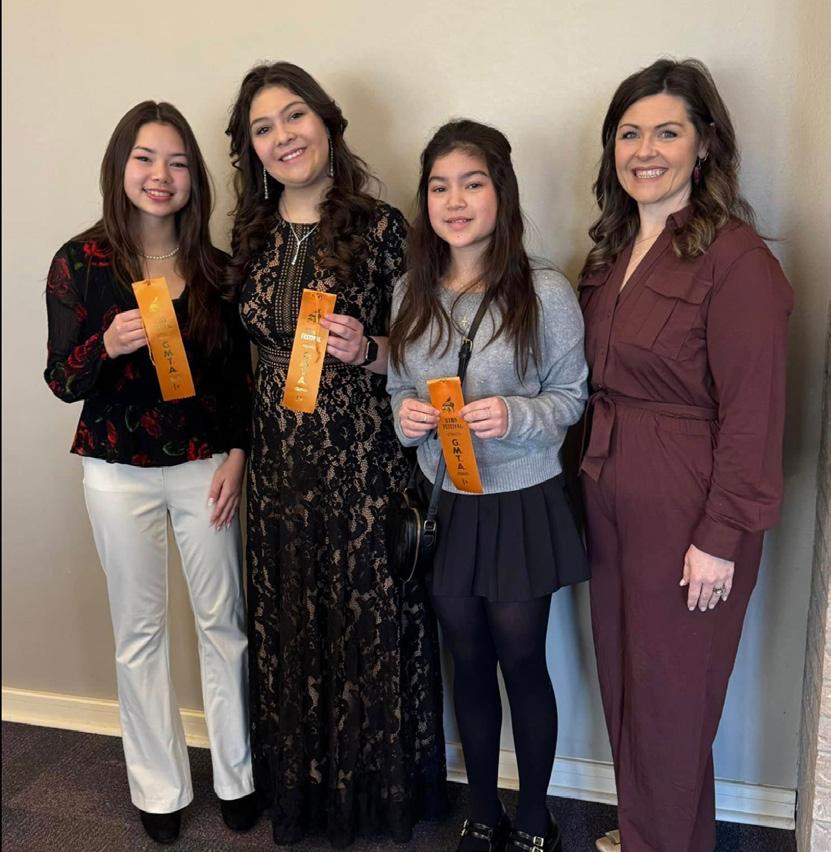
In conclusion, building an independent voice studio that caters to your strengths is a journey of self-discovery, creativity, and continuous growth. By identifying your unique skills, crafting a vision, and creating an environment that reflects your values, you can establish a studio that not only sets you apart but also brings out the best in your students. Ultimately, the key to success lies in authenticity — when you lean into your strengths and stay true to your passions, you’ll attract students who appreciate your approach and thrive under your guidance. It is important to allow ourselves not to be everything to everybody. Aligning to your core values and ideal client will make your work as a voice teacher fulfilling and sustainable, allowing your studio to flourish for years to come.
Dr. Amy Canchola, DMA, is an accomplished vocalist and educator with a passion for promoting the music of Latina women and Mexican composers. As a member of Duo Atesorado, she continues to explore and celebrate diverse musical traditions including commissioning the works of Mexican women for voice and guitar. Dr. Canchola’s dedication to her students shines through both off and on the stage. She has attended the NATS Science-Informed Pedagogy Institute, Amelia Rollings Bigler’s Summer Group Voice Intensive, and was a panelist at the 2025 NATS/NOA Conference. Canchola was a 2022 recipient of the NATS Joan Frey Boytim award and was a 2023 winner of the NATS Clifton Ware Group-Voice Pedagogy Award. She is a member of NATS, Mu Phi Epsilon, MTNA, PAVA, and the Voice Foundation. She cherishes time with her husband and four children. Discover more about her work, performances, and studio at www.amycanchola.com
By Leah Partridge
In September 2023, I spent a month commuting to Indiana University, filling in to teach for an internationally acclaimed opera singer with a thriving career. Every week, as I passed through the Indianapolis airport, I heard the same robotic warning:
“The moving walkway is coming to an end. Please watch your step.”
No matter where I stood, the synthetic voice cut through the airport hum — a mechanical forewarning, eerily in sync with my own thoughts. Nearing 50 years of age, with around 25 years in the music industry, I found its monotony strangely personal as if someone was set to remind me each week to take note, look around, and contemplate the future.

Two weeks in, balancing 30 students a week between two universities and my independent studio in Atlanta, the analogy of the airport warning hit me. My mind spiraled with existential questions:
Why am I teaching? What future awaits these students? Why does music matter? Who really needs diction in four languages? Why hasn’t anyone read a poem? How do we make audiences care? What should an art song recital look like today? Why do we keep doing it this way? How do I help them become artists, not robots? How do I steer them away from perfection? How do I show them they’re not broken — they’re just learning?
Somewhere in that relentless airport announcement, I found peace. How was that nagging statement peaceful? It made me remember a phrase painted on a yoga studio wall I frequented during the height of my performance career, one that always anchored me when I felt lost:
“Everything is perfect, and nothing is permanent.”
I can be just as pessimistic about the music industry as anyone: the pay is too low, the jobs too few, and the casting often misguided. It can feel like a game rigged for the privileged few in an industry that easily discards singers as disposable commodities. And music schools that sit at the top
of this behavior are the parents churning out the same tired system, failing to evolve.
But I’m hopeful. Change is life; instead of fearing it, we can embrace it — it’s the essence of creativity. Sure, uncertainty is uncomfortable. Our brains are wired to resist it because that is our animal survival mechanism that works for us, after all. But discomfort is the price of innovation. You gotta crack some eggs to make an omelet, right? So, even when my mind was bombarded with buzzing ideas that left me waking up anxious, I reminded myself — this is the creative process. When things are shifting, it’s uncomfortable and about to get real. And I believe we are experiencing this as a collective, all of us who live an artistic life.
Sitting at the airport, waiting for my flight back to Atlanta, I started listing everything I wanted to change about teaching and the music industry. I traced my own path — the bumpy, joyful ride that led me here. That relentless moving walkway warning, still stuck in my head, suddenly clicked as the perfect metaphor for students.
At some point, the walkway stops, and you have to walk — on your own. And sometimes, there’s no polite warning.
For nearly 30 years, I’ve heard the same refrain: The music industry is changing. Classical music is dying.
And yet, here we are. Classical music continues to be a vital and thriving force in the economy.
Yes, there are fewer jobs, and companies are rethinking their audiences, but we live in a time that craves authenticity and human connection more than ever. Maybe this narrative is just collective anxiety — our struggle to reconcile creativity with capitalism. But history proves one thing: in the darkest, most uncertain times, people have always created. And even with the threat of takeover in the arts from things like AI, we have to stay centered in knowing that live performance will always be valued and, therefore, by training students to be present, dynamic performers, we ensure that the art of live expression not only survives but thrives.
So, I see a bright future for the arts.
We’re expanding our skill sets at breakneck speed, and I know we have the tools to meet this moment. Over the past decade, I’ve worked with young musicians who are not only talented but deeply attuned to the world around them. They’re ready to do more than master their craft — they’re ready to redefine it.
“We’re expanding our skill sets at breakneck speed, and I know we have the tools to meet this moment. Over the past decade, I’ve worked with young musicians who are not only talented but deeply attuned to the world around them. They’re ready to do more than master their craft — they’re ready to redefine it.”
But it’s on us to build programs in universities and independent studios alike that prepare them for careers as unique as their talents. Yet, too often, how we train and educate students is still modeled on old methods and systems that I learned in school in the 1990s.
Mastery of craft will always be essential and our number one priority. Access to learning, however, has evolved, and with online courses, TikTok and Instagram tutorials from top teachers, and countless books and blogs, students are arriving at colleges more informed than ever. We should encourage them to explore these resources and embrace a more flexible, collaborative teaching approach. The old “my way or the highway” method is outdated.
Co-teaching and experimental instruction should be the norm. Traditionally, voice teachers were territorial, discouraging students from seeking outside guidance. But today, we know that working with multiple teachers can actually enhance a student’s growth. I’ve seen students returning from studying with other teachers gain more confidence, curiosity, and reassurance in their vocal journey. Singers can handle different perspectives — it strengthens their artistry. Universities should note that students crave variety and adaptability, and rotating instructors can accelerate student’s development. Letting go of control isn’t easy for many teachers, but it’s necessary.
Many academic programs insist it’s not their job to provide job security. I disagree. Current music business courses, if they exist at all at universities, focus on marketing performances and working with distributors — concepts that change so rapidly that their coursework becomes obsolete within a year and aren’t necessarily offered to the entire music student body. Instead, we need a music curriculum that equips all students with modern, adaptable skills, especially those who don’t see themselves pursuing pop stardom.
As educators, we must lead by example. Through social media, email outreach, and personal branding, we can demonstrate skills our students will need as performers and as future teachers. Yet, universities rarely offer courses that teach music students how to define their strengths, build an online presence, or develop content beyond traditional performance. This happens largely because academics haven’t defined these concepts for themselves. University voice departments, like successful businesses, should establish clear mission and value statements — regularly revisiting and refining them to stay aligned with their evolving vision. Independent voice studios have an advantage because they enjoy greater creative freedom, without being constrained by rigid rubrics or college departments that structure and evaluate music programs like other academic departments.
For years, we’ve trained singers for careers that barely exist — only a fraction of graduates will sing opera or musical theater professionally. Meanwhile, performance opportunities in universities are shrinking, with budgets slashed and fewer productions staged. The result? Some voice majors are graduating without ever having been in an opera, musical, or even sung a solo. Instead of cutting performance opportunities and degree programs, we should expand them to include musicians who seek unique paths beyond traditional performance. The old model — training every singer to be an opera star — never worked. It left a generation of burned-out artists feeling like failures. While universities may not guarantee jobs, they shouldn’t mislead students into thinking that an international classical career is the only viable option.
Imagine a school of music teaming up with the agriculture department to create original art — songs that celebrate sustainable farming, performances that bring environmental science to life, or visual storytelling that connects food production to culture. This kind of cross-disciplinary
collaboration wouldn’t just showcase the university’s unique strengths; it would help define its identity in an increasingly homogenized world. As virtual reality classrooms rise, universities must find new ways to stand out, and what better way than through the power of music and creativity?
Universities must do more than train musicians — they must prepare them for sustainable careers as artists, educators, advocates, or administrators. Music isn’t just an art; it’s an industry. We need to stop perpetuating the “starving artist” mentality and start showing students how to monetize their craft for whichever musical career path they choose.
What if music schools functioned more like top-tier business coaching programs? What if they clearly outlined their offerings, teacher strengths, and expected outcomes? In my independent studio, I took a business course that helped me define my teaching strengths and attract the right students. I use an intake form to ensure each student aligns with my expertise. If they’d be better served elsewhere, I refer them.
Most music schools lack this type of intake system. Students are often invited to audition based on a pre-screening video and accepted after a brief audition with no deep discussion of goals or fit. They arrive eager to “do music,” only to be told that what they’re doing isn’t “correct.” They may bounce between several applied teachers before graduating, leaving without a clear understanding of their individual voice or career path. We need a better way — placing voice students with teachers who align with their strengths and goals, whether in classical traditions, contemporary styles, choral singing, or pedagogy. No teacher should be expected to be all these things to every student.
One intake option could be offering workshops or summer intensives before auditions to help prospective students prepare for the rigors of a degree program and make informed choices. Yes, it’s time-consuming, but if we claim to be student-centered, shouldn’t we start by ensuring students are in the right place? And if a singer has a unique talent but no program at the school is available, shouldn’t we guide them — even if that means to another program or school? Or shouldn’t there be a faster track to adapt the program to meet the student’s needs?
I’ve seen the cracks firsthand in ten years of teaching across four different state universities. Academia and I have had a complicated relationship. I keep dabbling in and out of it, but I knew it was time to leave my first job when I got in trouble for helping a student transfer to Belmont — because she wanted to be a singer-songwriter, not a classical pianist. She was in the wrong place, yet we were supposed to keep her there.
We should be equipping music students with small business skills. Programs like The Speakeasy Cooperative, founded by Michelle Markwart Deveaux (SECO) teach voice-centered entrepreneurs to identify their strengths, serve their ideal client, and build a sustainable career. Instead of comparing rates (“They charge $60 an hour, so I guess I should too”), we should explore various business models and strategies including niche expertise that commands higher pay.
Look at industry leaders like:
• Jess Baldwin: True Colors Creativity and Artist Coaching: deeply committed to helping each client uncover the unique magic that each of them carries and to bring that to life in finished creative projects
• Maddie Tarbox, Shannon Coates, and Tom Burke: Building lucrative online voice teaching businesses
• John Henney: Author, teacher, entrepreneur, and popular teacher-trainer
• Ruby Rose Fox: Muscle Music: Teaching artists to be nervous-system aware and unshaming our innate biology to support sustainable artistry
• Dr. Dione Napier: Amplify Voice Studio: helping professionallevel opera singers and Bel Canto voice teachers solidify contemporary voice technique and vocal styling
These artist/entrepreneur/educators, and many others, have carved out profitable, fulfilling careers outside of academia. Imagine a university-backed certificate in contemporary or classical voice pedagogy, marketing, branding, or artist entrepreneurship. With university branding and top faculty, such programs could hold even greater weight in the industry.
But the reality is many faculty are overworked, underpaid, and drowning in responsibilities. The system isn’t working for teachers or students. No one can add anything else to their calendar, and the constant assessment and self-reviewing just ties up more time and leaves many creatives exhausted or phoning it in. What if universities could sharpen their focus, offering smaller, more specialized programs that play to their strengths rather than attempting to cater to everyone. This targeted approach might not only enhance student retention but could also satisfy administrators looking for stronger outcomes.
I believe that too many singers graduate with a list of their vocal “flaws” and no career path. The focus on technical perfection in 18th-century opera is valuable — but only for
the few with those skills and career goals. The rest? Left with debt, disappointment, and no direction. There have been countless students coming to my independent studio after an undergraduate degree from a university — weary, confused, and trying to figure out what value they bring to art and the industry. They can barely sing anymore because they are consumed by doubt, perfectionism, and color by number getthee-to-a-young-artist-program strategy. Most desire to go to graduate school and some have asked me if I think it’s worth it. It depends.
The reality is, students are already questioning the system. Some ask if they can build their own graduate program — studying privately, training abroad, and coaching with industry professionals. The answer? Yes, they can.
I created a sample two-year self-built post-undergraduate model for emerging classical/opera artists.
• Extensive, tailored private voice lessons
• Industry coaching with professionals secured by your teacher or connections you’ve made
• Immersive language study virtual or abroad
• Business coaching with professionals: On camera training (speaking and performing for digital audiences)
Building an online presence (social media, video channels, newsletters such as Substack Monetizing skills (list-building, self-promotion)
Curating and creating your own performances
• Same as year one except replace language study with an international pay-to-sing program that offers you a role.
Let’s compare costs. Without a significant fellowship, scholarship, or teaching assistantship, a traditional two-year university or conservatory graduate performance degree can be $20,000-$50,000 a year. A build-your-own graduate program could easily be half the cost, with real world experience to show for it.
To be clear, I don’t recommend this for undergraduates — college provides invaluable social and academic growth. But for graduate performance majors? If schools aren’t offering essential performance opportunities and business skills, why go into debt? Resources could be better spent elsewhere.
The future belongs to adaptable, business-savvy musicians in any genre. A truly valuable vocal program wouldn’t just
train singers — it would empower them to create sustainable careers. It’s time academia caught up. And if you’re a student, know this: it has always been up to you. You’re an artist. Getting into top programs may open doors, but true success lies in forging your own path. Don’t wait for the industry to catch up — lead the way.
With a performing career spanning over 20 years, soprano Leah Partridge has performed in some of the world’s most significant opera houses, including Seattle Opera, The Washington National Opera, The Metropolitan Opera, Semper Oper Dresden, Palau de les Artes Valencia, Teatro Colón Buenos Aires, Deutsche Oper Berlin, Atlanta Opera, Minnesota Opera, Detroit Opera, Florida Grand Opera, and Chicago Opera Theater, among others. As a teacher, Partridge is renowned for her nurturing approach to teaching and mentoring the next generation of emerging artists. She assists singers in identifying their unique strengths and expanding their artistic capabilities by exploring a variety of styles alongside classical repertoire. Through her blog, “The Voice Box” on Substack, Partridge has gained acclaim for her insightful writing, offering in-depth narratives on the intricacies of a performing career and emphasizing the importance of understanding one’s nervous system for a sustainable career in the arts. Partridge owns an independent studio in Atlanta, Georgia. She is a member of the National Association of Teachers of Singing and the SpeakEasy Cooperative. In her free time, she enjoys gardening and tending to her small flower farm outside of Athens, Georgia.

“Independent Voices” articles and ideas may be submitted any time; however, the annual submission deadlines are July 15 (fall) and January 15 (spring). Articles may be 1,000 to 4,000 words, preferably first person. Please include a headshot and/or topical photo(s) and a 100-word bio. Articles accepted for (digital) publication will be available in the public area of nats.org and can be freely shared online. Email CynthiaVaughn@icloud.com
by Marisa Gray Atha
Several years ago I wrote a blog article called “The 5-Minute Connection: Teaching the Whole Student.” This post went unexpectedly viral amongst the independent voice teacher community, perhaps because it speaks so keenly to our experience as voice teachers — those first five minutes of a lesson serve as a check-in, an attunement, and an opportunity to form a genuine connection with our voice students, meeting them as whole beings. From the beginning of each lesson, and woven through ongoing relationship, the bond between teacher and student builds over time.

“It takes a special person to be a voice teacher — someone who is gifted musically and knows how to teach, but also someone who can attune to each student, shifting oneself slightly to accommodate the other’s personhood, someone with emotional intelligence who can register the subtleties of a student.”
Sometimes a student will joke that I am like their therapist. We have a good laugh, nodding heads, with the clear understanding that I am not a licensed therapist, and I acknowledge my scope of practice, but nonetheless, our relationship holds so many threads of similarity to a therapy setting. My role as vocal technician, conveyor of theory/ear training, acting coach, genre specialist, etc. goes far beyond simply the musical and pedagogical. Like a therapist, mentor, life coach, or close friend, I am a repository for the goings-on of my students’ lives. I get to know them — their personality, sense of humor, age and maturity level, skills and abilities, challenges and obstacles, joys and celebrations. We see each other every week, in a focused, one-on-one setting, fundamentally comprised of deep listening — not even many close-knit adult friendships can boast this frequency and regularity that fosters the ongoing sense of being known.
When my students win the solo, are cast in their dream role, or produce their first original song, I get to cheer them on. When they are overlooked for the role, when they forget the
lyrics onstage, when their voice cracks in a big belt moment, I commiserate. Beyond the musical, I also ride the waves of the snippets of life my students choose to share with me: romantic breakups, family members’ illness or death, a cancer diagnosis, milestones such as graduations, college applications, interviews for a new job or career change, retirement, births, pet shenanigans, descriptions of holidays, vacations, meaningful events, sports and extracurricular activities, physical health and fitness, mental wellness, emotional ups and downs… you name it, I’ve talked about it with a voice student.
It takes a special person to be a voice teacher — someone who is gifted musically and knows how to teach, but also someone who can attune to each student, shifting oneself slightly to accommodate the other’s personhood, someone with emotional intelligence who can register the subtleties of a student. It also takes an awareness of how and when to draw professional boundaries.
Because the nature of the vocal instrument is so personal and vulnerable, aspects of a student’s emotional life often can’t help but bubble to the surface. A teacher must be aware when to hold safe space while a student has a necessary but messy moment, versus when it’s better to pull the student out of their negative, cyclical thought pattern and to focus on a manageable, tangible task. When a student tends to overshare, taking up large portions of the lesson time with tales of interpersonal drama, the teacher must be careful not to fall into a “friend” role and reciprocate with their own long-winded descriptions of baggage; like a therapist, coach, or mentor, a fine touch is needed to demonstrate knowledge of like experience with understanding, compassion, and empathy, but to let the student remain in the foreground, while gently steering the session back on task. Whether in regard to physical or mental health, a teacher must also consider what is beyond the scope of practice, and “when in doubt, refer out.” Akin to a referral to an ENT or laryngologist, if a teacher hears signs of vocal injury or disorder, a teacher may suggest a student contact a licensed therapist to address mental wellness; in circumstances of suspected abuse, a teacher may even need to serve as a mandated reporter, just as schoolteachers and sport coaches carry this responsibility. With such an often-intimate lens into a student’s life, the
voice teacher must maintain clarity, uprightness, and grounding, all the while holding a stable foundation for the student to learn and grow.
“Whether in regard to physical or mental health, a teacher must also consider what is beyond the scope of practice, and “when in doubt, refer out.””
A voice teacher holds a rather unique position as a trusted confidante, skilled mentor, proficient technician, and source of thoughtful consistency. During my years of vocal study, my favorite voice teachers were the ones who made me feel comfortable enough to make mistakes. They created an atmosphere of positivity, understanding, caring, humor, and unwavering support. They taught me the inner workings of my vocal instrument, but knew enough about the rest of my life to sense what kind of lesson I needed on a given day — exhausted and stressed out from midterms, maybe we just needed to let loose and sing the songs my voice loved best; well-rested and focused, maybe we take on the coloratura section of my newest aria.
From the first greeting and response to “How are you this week?”, through the opening warmups, an attuned voice teacher registers the subtle state of a student’s body, mind, and spirit, and gracefully steers the lesson, letting it unfold organically. Warm-ups and technique work are sculpted in real time: an overall sense of long-term direction and goals are interwoven with a present immediacy informed

by the state of being. Other aspects of the lesson unfold accordingly — song work, theory, expression, instrument development, foreign language diction, songwriting, audition preparation, etc. In contrast to an academic or group setting, the independent studio teacher is not confined to a set of expectations or standards to arrive at within a given time frame. The student leads with curiosity, and the teacher provides the continuum of scaffolding. From a heart-centered standpoint, the independent voice teacher grows to truly know the student, thereby facilitating the student’s freedom to learn, thrive, and express their own unique artistry through the medium of a fully embodied voice.
Marisa Gray Atha has enjoyed performing and teaching in the genres of musical theatre, classical, pop/rock, Jazz, folk, and world since 2002. Appreciating a wide variety of genres, her performance experience includes solo recitals, operatic roles, choral concerts, community outreach programs, venue gigging, and recording. She is the owner of Three Sparrows Studio, providing private vocal instruction with a holistic approach that empowers her students to find and free their own natural sound. Marisa holds a Bachelor of Arts in music, with a concentration in vocal performance, Master of Music in classical vocal performance, bachelor’s degree in English, minor in psychology, and served as a vocal department artistin-residence at school of the arts in San Francisco. She is a RYT-500 registered yoga teacher, CMT-200 certified meditation teacher, certified Core Singing voice instructor, charter member of the Speakeasy Cooperative for Independent Voice Teachers, and has 40 hours of Alexander Technique training. She has been published in the NATS Journal of Singing, NATS Inter Nos, OM Yoga & Lifestyle Magazine, and offers all manner of musical, mind/body, and wellness musings in her studio blog: threesparrowsstudio.com/blog.
Treat your favorite graduate with a membership to NATS — the premier organization for singing teachers and voice professionals! Your recipient will enjoy all the perks of NATS, including:
• New Job Center notifications,
• A digital subscription to the Journal of Singing,
• Networking opportunities,
• Special rates on conferences and workshops, and
• Exclusive access to a wealth of pedagogy resources. NATS offers multiple gift memberships options — Professional, Affiliate, Emerging Professional or Pre-Professional. After receiving the gift, your recipient may select another membership type, if eligible, that best fits their needs.
By Matthew Giallongo
Thanks to my mother’s insistence that I could not give up piano lessons, I have been music directing musicals in some capacity since I was 16. This job is what ultimately shaped me into a voice teacher. As I began to seek studio employment, music directing remained a consistent source of work, often more regular than private studio teaching. It was this work as a music director that first sparked my interest in learning how to help singers solve vocal issues.
Some of my most recent steady music directing work was at a local children’s theatre. This arrangement was ideal in many ways, as it allowed me to teach private lessons in the rehearsal space whenever it was not being used by the theater. With such a large pool of students to recruit from, building a studio became much easier. It also helped me connect with students who might not have sought out private instruction otherwise.

Matthew Giallongo
I was in a voice lesson versus when I was at the piano in rehearsal. Those two incidents are what sparked me to try and bridge the two perspectives into one cohesive educator.
Over time, I’ve developed strategies to reconcile my dual responsibilities as a voice teacher and music director. These approaches aim to prioritize vocal health and growth while meeting the immediate demands of a production:
This dual role also allowed me to advise the board to make smarter decisions on show selection. Because I worked closely with our regular participants in lessons and rehearsals, I had a deeper understanding of their voices and individual strengths. This insight meant I could advise repertoire that showcased their abilities while challenging them to grow.
It was in this situation that I began to feel myself being pulled in two directions.
“One of my voice students commented about how different I was in a voice lesson versus when I was at the piano in rehearsal. Those two incidents are what sparked me to try and bridge the two perspectives into one cohesive educator.”
One not-so-proud memory comes to mind that prompted me to change my thinking and method: I was working with a student on some careful vowel modifications for some challenging passages. Later that same day, as the music director, I told the same student, “Just hit the high note!”
The irony wasn’t lost on me. And it was not long after that one of my voice students commented about how different
Whenever possible, I let my music coachings reflect elements of voice lessons. For example, in coachings, I take a moment to give principals specific technical exercises tailored to their challenges. This ensures they are building skills even within the constraints of the rehearsal process. This could be helping a young singer learn ways of feeling their tongue tension when they are home practicing, or it could also be making sure the young baritone understands he needs to follow a different vowel modification strategy than the tenor on the recording.
Whenever I’m involved in casting, I insist on having a dedicated music callback, not just acting evaluations. If the director is dissatisfied with the singing at callbacks, I make it clear that significant improvement by opening night is unlikely in a short rehearsal process. We all know as voice teachers that vocal progress can be slow for even the most talented students. Of course when we are working with teenagers, we must take into account that their voices are still developing and should not be pushed too far beyond what they present at the audition.
It’s essential to have candid conversations with the casting team about vocal progress timelines. I emphasize that vocal development often requires more time than a rehearsal schedule allows. The best example I can point to is when we were casting Dorothy in the Wizard of Oz and it came down to whether it would be the better actor or the better singer. My
argument with the director was that in my experience, acting skills can progress faster than singing progress. The song “Over the Rainbow” exposed all of the registration issues the actor had, and I did not think that it could be fixed in time.
“No
amount of pushing from a director can create confidence if the student hasn’t had the time or tools to develop it. I try to balance the director’s expectations with a realistic understanding of what the performer needs to succeed.”
Students often underperform when they feel self-conscious about difficult technical demands. No amount of pushing from a director can create confidence if the student hasn’t had the time or tools to develop it. I try to balance the director’s expectations with a realistic understanding of what the performer needs to succeed. Just like in voice lessons the students appreciate a specific practice plan to follow which will hopefully make them feel successful. And fortunately, my students trust me enough to believe me when I tell them, “We wouldn’t have cast you in this role if we didn’t think you could handle it.”
Balancing vocal technique with a director’s vision often requires difficult compromises. An example that has stayed with me is when working on Camp Rock: The Musical, I coached a treble voice to flip into head voice during a duet for a passage she couldn’t manage in a belt. During a runthrough, the director stopped the rehearsal and said bluntly, “Those sounds won’t fly.” I was faced with a choice: push the student to strain for a belt quality or advocate for an alternative sound. The director did not care for the noncommercial sounds that the registration change elicited. What ended up happening was that I wrote a harmony part that allowed the singer to satisfy the director’s aural desires and my desired pedagogical outcome.
At another theatre, I was helping a young baritone develop some laryngeal stability for a difficult passage. Before he could fully digest the new information, the director interrupted, loudly modeled the passage in a strident tone, and effectively ended my coaching session. Moments like this highlight the tension between nurturing long-term
vocal development and meeting the immediate demands of the director.
When working with a singer who does not study with me, I make a conscious effort to keep my coaching hat on and avoid delving too specifically into technical instruction. Instead of addressing mechanics directly, I frame my feedback in ways that encourage a more organic response. If a singer is over-articulating with their jaw, I might simply ask, “Can this phrase be more legato?” If they seem to be undersupporting, I’ll ask, “On a scale of 1-10, how much energy do you think you’re putting out?” If they say it feels like an 8, but to my ears, it reads more like a 3, I’ll point that out so they can recalibrate their effort. When an actor is forcing their sound, rather than asking them to adjust their registration, I might ask, “Could you sing that in a way that expresses [specific emotion]?”— shifting their focus toward storytelling rather than anything technical.
If a technical issue persists, I sometimes encourage them to bring it up with their voice teacher. I’ll phrase it as, “If you were my student, I’d suggest trying X. Could you ask your teacher how they’d like you to approach it?” This keeps the conversation respectful of their teacher’s expertise while also addressing the immediate needs of the production.
One common challenge I face when music directing high school students is working against habits ingrained from their choral training. A particularly persistent issue is the overly dropped jaw on [a] and [o] vowels, something even my non-musician husband has learned to identify. When addressing this, I assure students that their choir director is not wrong — choral singing and solo singing serve different purposes. However, in a solo setting, I might ask them to experiment with a more neutral jaw position, so their sound aligns more naturally with speech. This approach helps them navigate the shift between ensemble and solo work without feeling like they’re being told to “unlearn” something valuable.
When I work with pre-professional and professional performers as a music director, I tend to take a more technical approach. At this level, the director can typically focus on artistic choices and storytelling, which allows me to spend more time refining vocal production. In the professional productions I’ve music directed, the cast was
set before I was hired, so I would ask principals if they were interested in technical exercises tailored to their roles. Sometimes the answer was no, but more often than not, they enthusiastically agreed, knowing that even small adjustments could improve their performance.
Another major shift when working with professionals is my focus on intonation. With younger or less experienced singers, I often let minor intonation issues slide because the root cause is usually functional rather than aural. This perspective comes from my own vocal journey — at one point, I lost valuable years of healthy singing because I was repeatedly told to “be brighter and get on top of the pitch.” This led me to sing with an overly bright, shallow sound that created more problems than it solved.
In a professional setting, however, precision in tuning is non-negotiable, especially in ensemble numbers where tight harmonies are essential. I am much more direct about adjustments, saying things like, “Tenors, you need to modify your laryngeal position or flip into falsetto, for this passage, the sound is too strident, and you’re sticking out of the texture.” In these cases, the expectation is that singers can make rapid adjustments, and the level of accountability is much higher than in an educational or community setting.
Being both a voice teacher and a music director has its challenges, but it also offers unique rewards. The tension between nurturing long-term vocal development and meeting the immediate demands of a production has taught
me to balance flexibility with advocacy. By integrating teaching moments into rehearsals and maintaining a commitment to vocal health, I’ve found ways to support my students without compromising the needs of the show.
This balancing act has deeply influenced my philosophy as both an educator and a director. It has reinforced the importance of flexibility, creativity, and clarity in my dual roles. When I interview for music director positions now, I am explicit about what I prioritize in my teaching: fostering vocal growth and preserving vocal health, even in the highpressure environment of a theatre production. This clarity not only sets expectations but also ensures that my teaching values align with the goals of the creative team.
Ultimately, the overlap of these roles has given me a unique perspective. It’s a privilege to help performers navigate their artistic journeys, and even when there are “notes in conflict,” those moments often lead to the most meaningful growth for the students and for me.
Dr. Matthew Giallongo, baritone, is celebrated for his “beautiful voice and depth of feeling.” Equally at home in opera and recital, he has performed across the Northeast and holds degrees from Gettysburg College, Temple University, Colorado State University, and a D.M.A. from the University of Cincinnati –College Conservatory of Music. He has 15 years of experience as an independent voice teacher in Pennsylvania, Colorado, Texas, and Massachusetts. As a pianist and coach, he has directed many musical theatre shows for children’s theater, community theater, and universities. He is currently the director of vocal studies at Purdue University Fort Wayne.
Members: Now is a good time to update your information on NATS.org. Keeping your contact information up-to-date ensures that you won’t miss any of our member benefits or upcoming events.
To make updates, log on to your Member Home Page (your email address for NATS correspondence is your Login). Then, click the “My Profile” link on the right.

You also can call the NATS National Office at 904-992-9101 for assistance.
By Thomas Erik Angerhoffer
Morihei Ueshiba, martial arts master and founder of Aikido, is attributed with the famous quote, “there are many paths leading to the top of Mt. Fuji, but there is only one summit — love.” This is but one of the many platitudes beloved and repeated by martial artists around the world that have gained widespread popularity. An older version of this quote ends with, “but there is only one sunset to be seen by those who reach its summit.” This is meant to suggest that there are many different and valid ways to find your way to the truth, to solve a problem, or to achieve the same result. What I find interesting is that these quotes neglect to mention that for every path that leads up the mountain, there are likely dozens of paths that lead off a cliff! That quote, however, wouldn’t be likely to sell many bumper stickers.
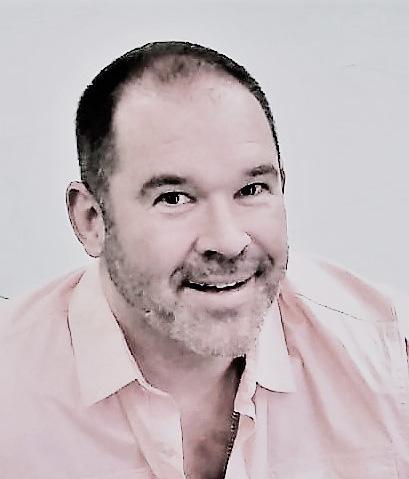
difficulty to the point where neural pathways are shortened and strengthened in a way that the response to a variety of stimuli becomes habituated, with the aim of responding dispassionately to unwarranted aggression… “this is the way,” as the Mandalorian said. Seems familiar, right? Well, hopefully not the aggression part, but the part about the training seems a lot like the way we craft and practice vocalises. In the case of the singer, significant time and energy is put into vocalizing so that our intentions manifest into appropriate physical action habitually so that we are easily able to navigate the challenges found in the score. And, when that doesn’t happen, we turn the difficult passages of the score into an exercise to build the requisite skill to handle them with ease. This is exactly how the ancient masters of the martial arts developed the forms, or solo exercises that have been passed down from generation to generation.
“As a teacher, I aim to encourage my students to create their own paths, while helping to steer them clear of the ones that lead to danger. And, whenever that isn’t possible, I at least try to arm them with the tools they will need to navigate themselves to safety.”
In 2024, I celebrated 40 years of martial arts practice. Interestingly, that year also marked 40 years of studying singing. Like my journey in martial arts, my life in music has had its twists and turns, ups and downs, bumps and bruises, and has been anything but a path straight up the mountain. In fact, I think I probably discovered most of those cliffs along the way. Of course, there are many things that one needs to experience and learn for oneself, but there are also many times when it is perfectly reasonable learning from the example of others. As a teacher, I aim to encourage my students to create their own paths, while helping to steer them clear of the ones that lead to danger. And, whenever that isn’t possible, I at least try to arm them with the tools they will need to navigate themselves to safety.
In the martial arts, we refer to this as “functional spontaneity.” Years of repetitive exercises, each with distinct learning outcomes, progressively adding variables and
This is but one of the strange and wonderful parallels between the practices of music and the martial arts. I’ve been fortunate to learn from many incredible teachers, in both music and martial arts, and I’ve also learned from a number of less incredible teachers, too. Most of them helped point me toward the summit, and a few led me toward some cliffs, but I’ve always had some great people around me that picked
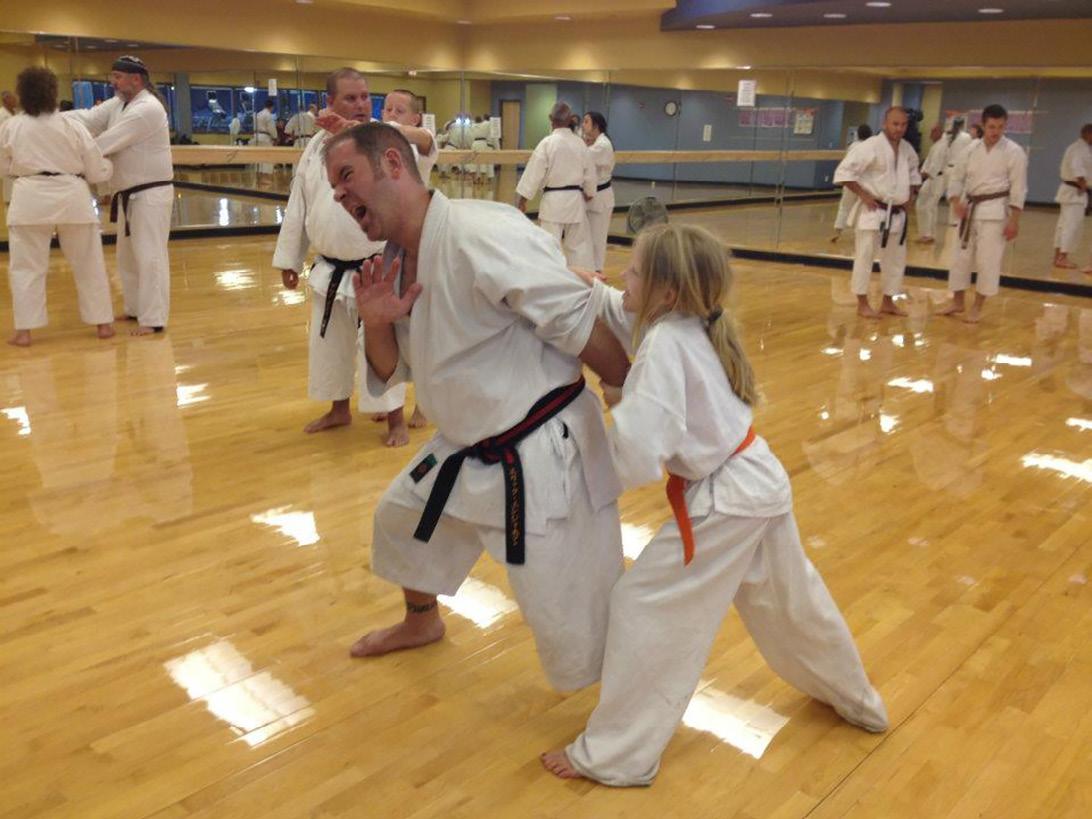
me up, brushed me off, and walked the path with me until I was able to walk on my own (even when straying from the path was entirely my doing). For that, I am forever grateful, for it is only when you get far enough down the path that you realize the journey is truly the destination, and that one doesn’t have to reach the summit to find and share the love, joy, and sometimes frustration, of the adventure. Hence, I’d like to share with you some of the lessons I continue to learn from this twofold exploration of music and martial arts in the form of maxims that have shown to be relevant and meaningful to me as a singer and self-professed “karate bum.”
“When the student is ready, the teacher appears.” There have been many times throughout my decades in the martial arts when I have been introduced to what seems to be new information. Sometimes these new techniques, concepts, or ideas are absolutely transformative. My martial arts teacher calls these BFO’s, or “blinding flashes of the obvious.” My first thought is, “Wow — this is incredible,” but it usually isn’t long before my thoughts turn to shame or even anger. “How did I not know this before… it is so foundational to everything I do?” Even worse, “Why didn’t anyone show me this before — it is so basic?!” This has happened in singing, as well. One example is breathing; I can remember the year I first began to understand breathing. It was 2008. That’s like, 24 years into taking lessons. I even had another epiphany in 2016 when I was presented with new information that seemed like I should’ve known all along. Now, I’m certain that many of my teachers helped me with breathing from the very beginning, but there really was so much to learn. Also, don’t forget, it’s all happening at once. The reality is that on those days in 2008 and 2016 I was ready to learn those lessons. They’ve changed my life, and I’m so thankful that I met those people who shared that info when I was able to hear it.
“Before enlightenment, chop wood and carry water. After enlightenment, chop wood and carry water.” Early in my martial arts training, I was fascinated with ninjas. I mean, they are just so freakin’ sweet. Back flips, front flips, throwing stars, cool shoes… what’s not to love? In my quest for ninjahood, I trained in a number of martial arts, never quite attaining the skills that I admired from the movies. In fact, not one of the styles I practiced had any acrobatics. Long after the dissolution of my childhood fantasy, I found myself teaching martial arts full time to a large student body ranging from age 4 to 84. By that time, I had already enjoyed a successful competitive career and had become much more interested in the process as I was tasked with helping others acquire and develop skill. As a singer, I went from performer, to student, to wanna-be performer, to dropout, to student
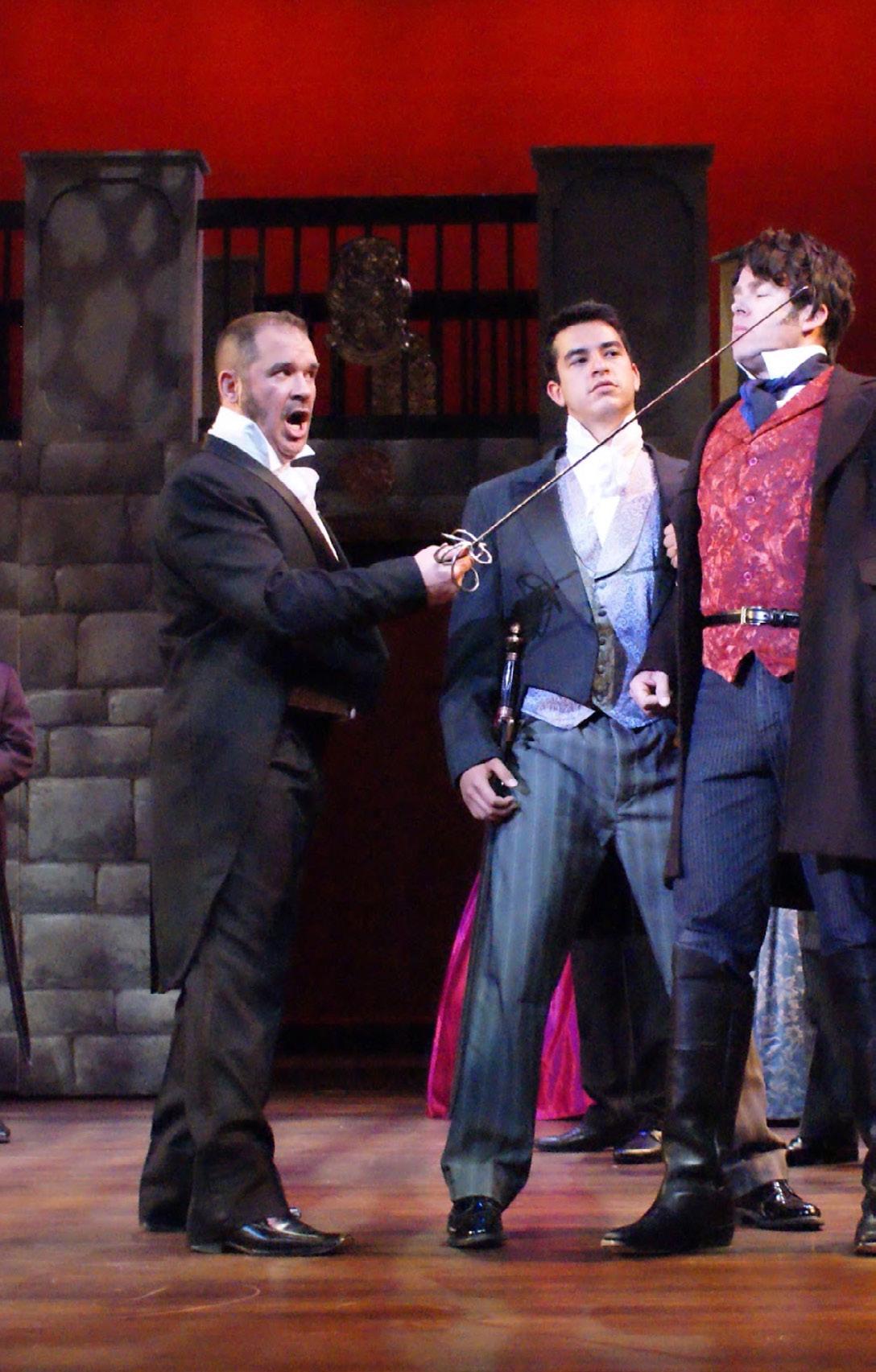
again, to free-lancer, to part-time teacher, to full-time teacher; not exactly the straight and narrow, but very much like my martial arts journey. As I transitioned toward becoming a full-time teacher, I realized that I had already been more interested in process, which probably didn’t make me the best performer. I’ve leaned into numerous technologies and advancements over the years, but as much as things change, some things remain the same. Remember the things you did to get good? The basics? They’re not all that appealing, and they’re certainly not trendy, but guess what — whatever you did to get good is exactly what you need to keep doing to stay good.
“Slow leads to smooth. Smooth leads to fast.” Have you ever seen Tai Chi before? It is typically associated with the aging population as a form of physical activity. We see countless pictures of people practicing Tai Chi in the park, all
moving in slow motion to better their health and longevity. While it is true that there are amazing physical and cognitive benefits to this practice, especially for those who are looking for something low impact, the original purpose of the art is actually self-protection. Wait a minute… how can one protect oneself in slow motion? The interesting thing is that this slow, deliberate practice was actually designed to promote structure and efficiency while moving fast. By slowing things down, one is able to focus on skeletal alignment and muscular efficiency, developing kinesthetic awareness and shortening/strengthening neural pathways, cutting the reaction time from stimulus to response, all the while empowering the body to release the power of intention with ease and predictability. In modern terminology, we refer to this as deep or deliberate practice. Having difficulty with that passage that starts in your lower range and goes through the transition to your higher range? Slow it down. Transpose it down. Slide on a single vowel, maintaining integrity and structure from the low note to the high note. Add more vowels. Add in the rest of the notes but stay “slidey.” Add in the rest of the vowels while maintaining a consistent and appropriate vocal tract shape. Slowly pick up the tempo. Start transposing it back up. Go past the speed and pitch where
you had difficulty. Good. You’ve got this. This is the way. Or maybe just a way, but a way that will, hopefully, keep you from going over the cliff — or at least give you some tools to claw your way back up. The nice thing is that there will be a lot of wonderful people there to help you up and walk the path with you when you’re ready.
Thomas Erik Angerhofer was encouraged to pursue his passions for music and martial arts going back to his elementary school years. He has benefitted from excellent instruction in both, leading to many successes and countless failures. Nevertheless, he continues to follow his bliss and does his best to help others along the way. He currently runs his own private dojo, catering to all types of learners, especially those seeking to “liberate themselves from the classical mess” — Bruce Lee. Likewise, he has a private vocal studio of professional singers from across the spectrum of genres. He has taught voice and directed shows at a handful of institutions across the states, and has performed in opera, musical theatre, concert, recital, and the American Songbook from Buffalo to Beirut. He received a doctorate and master’s degree in music from the University of Colorado, Boulder, and a bachelor’s degree from SUNY Fredonia. In addition to his independent studio, he currently serves as the voice area coordinator at West Virginia University.

By Jen Jimenez, Development Director
NATS member and 2025 Intern Program Master Teacher, Sandra Oberoi, has felt the cadence of music calling her since childhood. As a three-year-old, Oberoi was already performing publicly, guided by her father. Together, they would sing an array of genres from gospel to Hindustani ghazels, Simon and Garfunkel to Sandi Patti. At the age of 12, she discovered a cappella singing and listened to complex harmonies on the few cassette tapes she had at home.
“My little sister and I would also sing ourselves to sleep every night, improvising and trying out what we thought were very “cool” harmonies,” she said.
Since opportunities to participate in formal voice study were scarce in India due to lack of voice teachers and high expense, her first formal lessons began at the age of 22. Her talent, discipline, and passion for singing and teaching were immediately evident to her vocal instructor. She excelled so quickly that her voice teacher asked her to take over teaching some of his students, which she gladly accepted.
“I’m living out my 12-year-old self’s
anyone of any age in a supportive, engaging, and nurturing environment. Since music education is not commonly included in India’s school day, Harmony grew quickly with children and adults receiving voice and instrumental music instruction from highly qualified teachers.
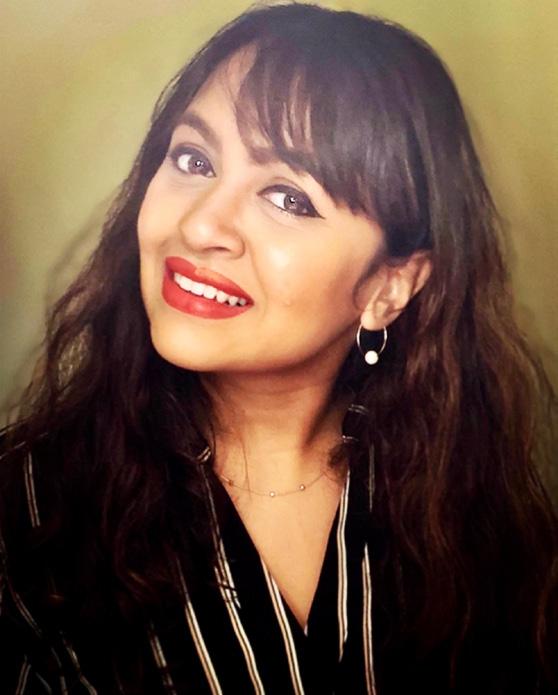
“Since Harmony was founded, I feel so privileged to have mentored several students who have gone on to study at some of the best programs in the world,” she said. “Some are now teaching and building their own studios, performing on world stages, including at Carnegie Hall, and some working with top musicians.
In addition to private and group lessons, Oberoi also launched The Harmony Chorus, a youth choir singing everything from Bollywood music to U.S. pop hits. The Harmony Chorus has currently completed four international tours, created several music videos, and even placed in the Top 8 in a reality singing show broadcast on Indian National Television. Their YouTube channel, TheHarmonyChorusOfficial, is steadily growing and allows their work to be showcased on a global stage as cultural ambassadors.
dream with great joy and a heart full of gratitude!”
“It was during this period that I realized that along with performing, I really enjoyed sharing the gift of learning,” she explained. “I eventually went on to finish degrees in vocal performance and music education which really helped develop my teaching ability.”
Oberoi always felt a natural passion for studying music, but it wasn’t until her first-born daughter began music lessons that she knew which path to take on her musical journey. Not pleased with her daughter’s music instruction, Sandra saw a need for an independent, after-school program where students could receive high-quality music instruction.
In 2008, Oberoi opened Harmony - The Music School providing instruction to not only her two daughters, but
Her newest initiative, Harmony International, is a global wing and extension of her work in India.
“I am keen to continue developing this international entity,” she said. “We’re curating programs worldwide that continue celebrating the democratization of the vocal curriculum and offer professional development programs for early-career teachers.”
“One doesn’t always have to have a grand or glorious start; however, patience, consistency and dedication is the key to ensure its success over time.”
As an independent school owner and teacher, she is happy to share her successes and challenges of owning a business
with her NATS colleagues. She believes that hard work speaks for itself and listening to what the student needs, rather than selling what her school offers, enables her to creatively highlight how the products can benefit the student. When asked what advice she might give a fellow voice teacher thinking of opening an independent studio, Oberoi said don’t despise humble beginnings.
“Little drops always add up and moreover the good seeds you sow today will bear fruit in due season,” she said. “That is just how the world works. I have seen it repeatedly in several projects that I’ve started at the school. One doesn’t always have to have a grand or glorious start; however, patience, consistency and dedication is the key to ensure its success over time.”
The Group-Voice Pedagogy Award has been established by Clifton Ware, professor emeritus (voice, voice pedagogy), University of Minnesota Twin Cities and a long-time NATS member. It is designed to highlight the concept of group voice and its potential impact for singers through offerings in community, independent, and academic settings.
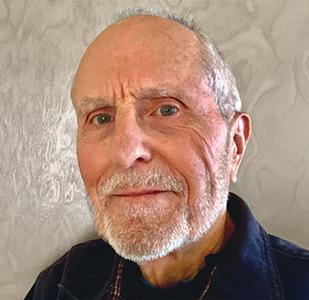
Applicants for this award must be NATS members in good standing who want to advance the idea of learning to sing together in group voice instructional settings of any size. Submissions should reflect your aspirations and qualifications to further Group Voice Pedagogy and how the award will be used. These may include developing or being part of practicums, workshops, attaining or developing instructional resources, or any other number of ideas related to group voice pedagogy. The annual award amount is up to $1,000. Scan the QR code for more information.
Application deadline May 8, 2025
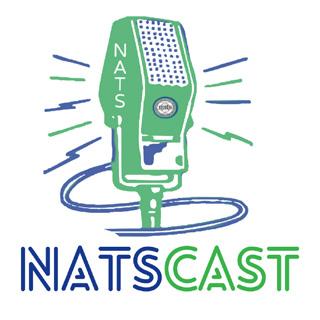
NATSCast, the official podcast network of the National Association of Teachers of Singing, has established a varied, credible and entertaining group of podcasts featuring a myriad of topics — from the business of singing to voice health, teaching singers (of course!), and even chatting with Broadway stars.
Visit nats.org for more information.
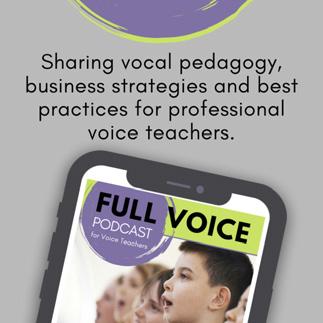


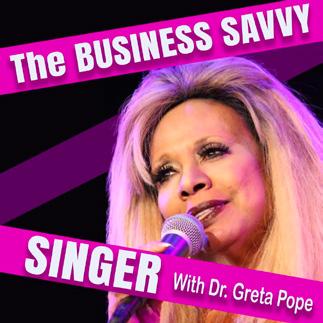

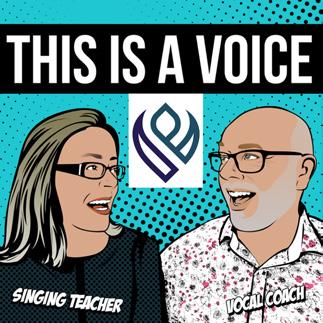
The National Association of Teachers of Singing and The Voice Foundation are delighted to announce Nicholas Perna as the 2025 Van L. Lawrence Fellowship Award recipient. This prestigious honor includes a $2,000 award to support Perna’s research and the opportunity to attend the 54th Annual Symposium: Care of the Professional Voice, May 28-June 1, 2025, in Philadelphia
Perna is a NATS member in the Colorado/ Wyoming Chapter of the West Central Region and an associate professor of voice and director of vocal pedagogy at the University of Colorado. He currently serves as the NATS Vice President for Outreach (2022-2026) on the NATS Board of Directors and has been the poster paper coordinator for NATS national conferences, including the most recent 2024 gathering in Knoxville, Tennessee. Perna also cohosts VocalFri with Sarah Welch Pigott. The weekly podcast is a member of NATSCast, the official podcast network of NATS.

musical theater singers may increase VPO as pitch increases and move into their ‘mixed voice.’ If that is true, this study could aid singers and voice teachers to better understand how to execute climactic higher pitches in an easier and healthier production, specifically in MT styles. I am grateful to have received assistance with research design from Dr. Joshua Glasner with Lions Voice Clinic, and thankful for the help of my two graduate research assistants Alice Del Simone and Benjamin South.
“On a personal note, receiving this honor in my first year at University of Colorado Boulder as the Director of Voice Pedagogy is particularly meaningful. Van Lawrence was one of the voice scientists with whom our program’s founder, Berton Coffin collaborated as he came to his own observations of the singing voice.”
Perna’s award will go toward his ongoing research centered on velopharyngeal opening (VPO) variability in collegiate treble singers.
“Investigating nasality, nasal airflow, and velopharyngeal opening (VPO) have been central to my research agenda my entire career,” Perna explained. “Our fellowship research seeks to determine whether collegiate treble singers vary VPO as pitch increases. We also want to discover how Western Classical (WC) or Musical Theater (MT) singers VPO differs as pitch increases. We will analyze if there is any correlative behavior in these singers’ contact quotient as pitch increases. There is anecdotal evidence to suggest treble
Both the National Association of Teachers of Singing and The Voice Foundation extend their congratulations to Nicholas Perna for his achievements and look forward to findings from his VPO research.
Learn more about Nicholas Perna at nicholasperna.com
The Van L. Lawrence Fellowship was created to honor Van L. Lawrence, M.D., for his outstanding contribution to voice, and particularly to recognize the importance of the interdisciplinary education he fostered among laryngologists and singing teachers. The Voice Foundation and the Foundation Heritage Fund of the NATS Endowment award it jointly. Read more at nats.org
For Job Seekers: Discover opportunities specifically for voice professionals –completely free of charge.
For Employers: Reach more than 7,000 NATS members and other voice professionals through our targeted job postings. Listings are also featured in our weekly member email, Intermezzo.
Posting Fee: $250 per listing.
Questions? Contact the NATS office at 904-992-9101 or info@nats.org.
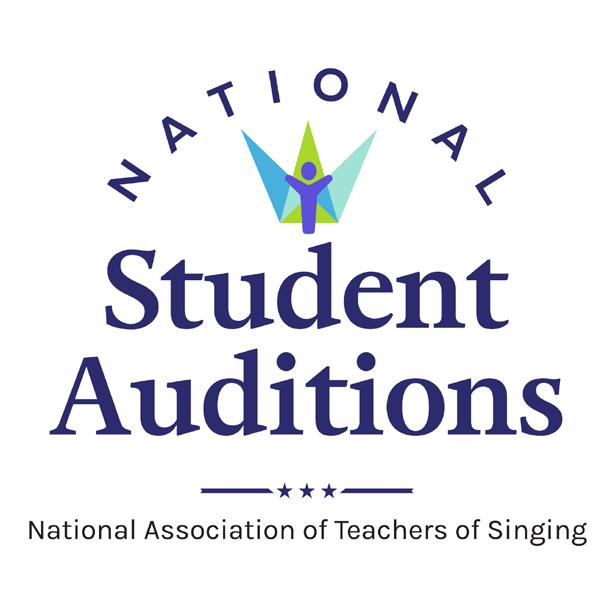
JUNE 26–28, 2025
Temple University • Philadelphia, Pennsylvania
AuditionCon is your chance to recruit, network & showcase your school or company! Held in conjunction with the 2025 NATS National Student Auditions Semifinals and Finals, AuditionCon offers an expo-style atmosphere and guarantees exhibitors the opportunity to lead a standalone performance class or workshop.
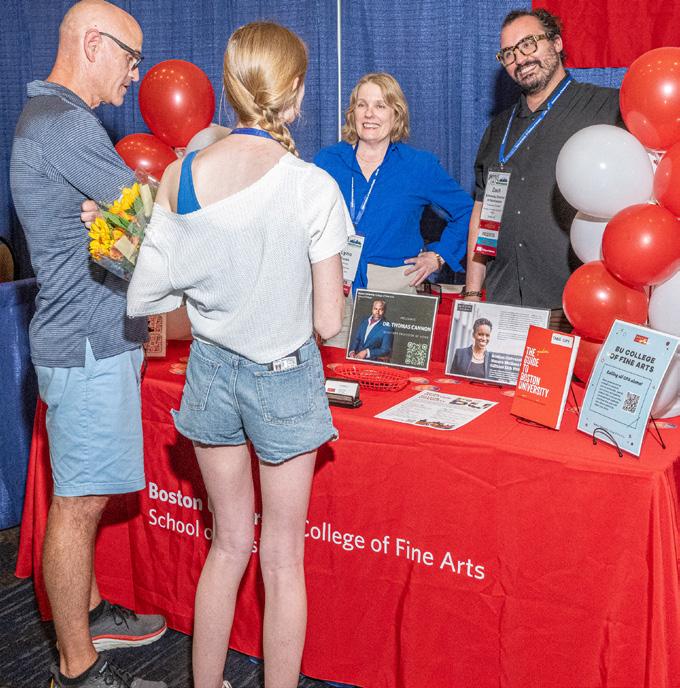

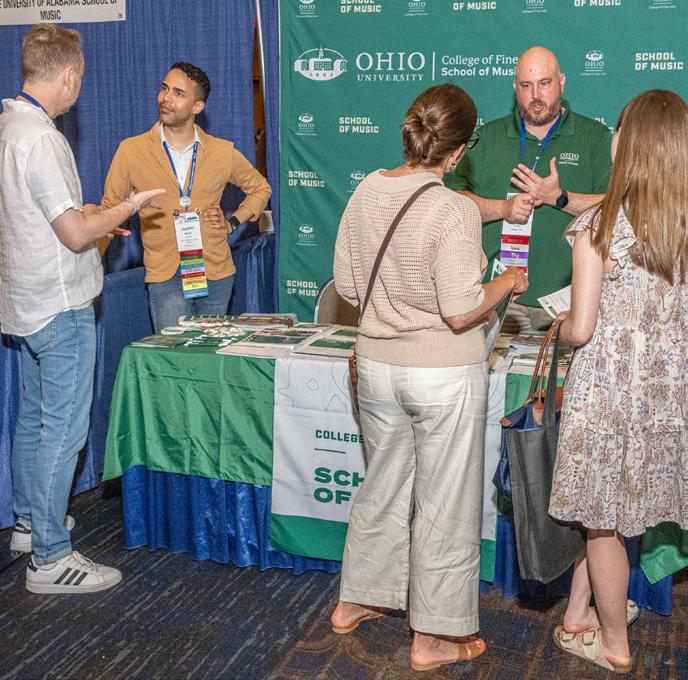
The National Association of Teachers of Singing invites you to submit abstracts for poster paper presentations at the 59th NATS National Conference, July 3–7, 2026, in San Antonio, Texas. Topics may include:
◾ Voice Pedagogy
◾ Voice Science
◾ The Private Studio
◾ Technology and Teaching
Vocal Repertoire ◾ Performance Practice ◾ Commercial Styles ◾ Musicological Studies
…or any other topic related to the art and science of singing and teaching singing.
Abstracts should not Exceed 500 words and should be completed through the NATS.org portal. Only electronic submissions will be considered.
NATIONAL ASSOCIATION OF TEACHERS OF SINGING 59th NATS National Conference
National Association of Teachers of Singing 59th National Conference
All are invited to submit proposals for presentations, workshops, lecture recitals, and performances for the 59th NATS National Conference, July 3–7, 2026, in San Antonio, Texas. We strongly encourage submissions that celebrate the theme of Our Mosaic of Music — highlighting cultural diversity, shared musical heritage, and the ways our artistry connects us across traditions and influences. Preference will be given to proposals with two or more presenters.
We also will be celebrating the 250th anniversary of the United States on July 4.
Visit NATS.org for full details.
Avibrant exchange of musical ideas has been brewing since this past fall when NATS paired 12 emerging composers with established art song composers for the 2024-25 NATS Mentoring Program for Composers
Now in its fifth consecutive season, the mentorship program nurtures earlycareer art song composers, the creation of new works, and a sense of community. Running from October to June, each mentee-mentor pair meets about once a month online. A big focus of the program is on setting text for voice, however, mentors often provide additional guidance on resources, performances opportunities, and options for recording and publishing. The mentors serve as sounding boards, helping answer questions mentees may have about the industry and art form. There is no cost for composers to apply or participate.
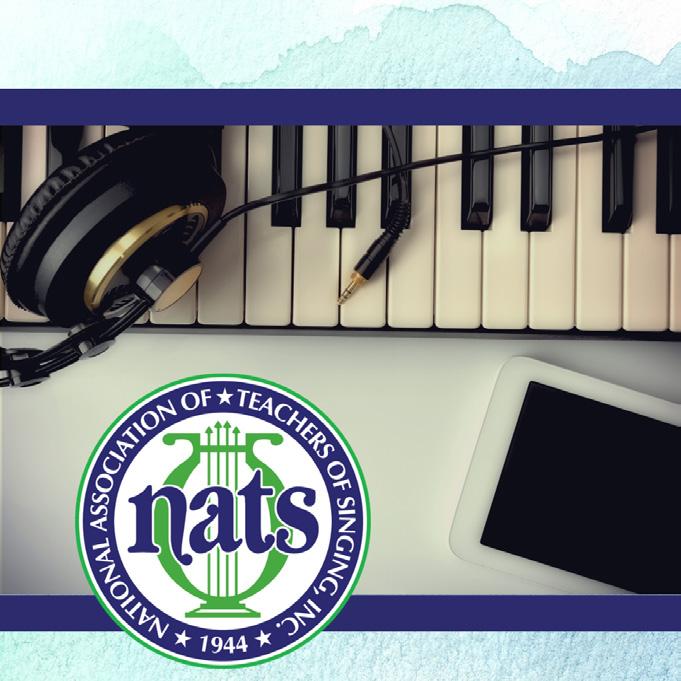
“Having someone to provide feedback and help enforce goals is invaluable,” she says.
Mentee Danika Lorèn calls the mentorship experience “lovely.”
“Lori is so great with feedback and finding time to answer all of my questions,” Lorèn says. “I feel very supported by her.”
Several of the mentees are quick to point out how distinct the program is in the field of composition.
“There aren’t many opportunities out there for emerging art song and vocal music composers,” Kastner says. “Working with a composer who is specifically focused on vocal music, is a very special opportunity and very unique to this program.”
Sam Wu has had a “fantastic experience” with his mentor Jeffrey Mumford.
Noted composers of works for voice Lori Laitman and Tom Cipullo serve as co-advisors, and both also participate as mentors. A season highlight is the NATS-commissioned song from each mentee that is premiered by the Cincinnati Song Initiative for the “Let It Be New ” concerts. The streaming concert will be held this June with final details to be announced. Past program mentees have had opportunities to share their pieces at various NATS events at the chapter, regional, and national levels.
As the 2024-25 program crosses the halfway point, participants are sharing how grateful they are for their mentors’ guidance and encouragement.
Max Eidinoff, paired with mentor Lori Laitman, has specifically appreciated learning about building meaningful collaborations in opera, publishing scores, and self-promotion strategies.
“It has been wonderful meeting and working with Lori,” he says. “She has shared so many important insights with me about working in the industry
Similarly, mentee Josh Fishbein describes working with his mentor, Tom Cipullo, as “an absolute joy” and is pleased about the valuable professional connections he has gained.
Sophie Kastner notes that working with a mentor has “brought back structure” to her artistic practice after completing her master’s degree.
“I’ve always wanted to write an art song setting an English text, as well as collaborate with a living poet,” Wu adds. “I’m delighted to have achieved both through this program.”
I’m having a great time getting to meet two extremely talented early-career artists. Their concerns and questions are timely and provocative, and I am so impressed with the music they write.
—Mentor Tom Cipullo
Raphael Fusco, paired with mentor Scott Wheeler, values how this NATS program provides a network where composers with a shared passion for art song can connect.
“To feel part of this vibrant, diverse community is empowering and inspiring,” he says. “As an expat, I often feel removed from the American music scene. To reconnect with artists back home is very meaningful. I would absolutely recommend the program to other composers of vocal music.”
For the mentors, working with emerging composers has proven to be equally rewarding.
NATS is proud to offer programming that supports rising composers of new art song. In addition to the Mentoring Program for Composers, NATS offers an annual Art Song Composition Award. This year, in an anonymous adjudication process, NATS named current mentee Raphael Fusco the 2025 first-prize winner for his song cycle, Love Songs from a Third Floor Walk-Up, featuring text by Caitlin Vincent.
Submissions for the 2026 NATS Art Song Composition Award open June 1, 2025, with a deadline of December 1, 2025. The competition awards over $3,000 in prizes, and is led by Carol Mikkelsen, coordinator, and Lori Laitman, advisor.
NATS also invites supporters to commission one of the 12 songs for the “Let It Be New” concert this June. A $600 gift provides the opportunity to honor a loved one, friend, or mentee with a personal inscription. Commissioning a new work is a meaningful way to create a lasting tribute.
For additional information or questions about supporting this program with a donation, please contact NATS Development Director Jen Jimenez at jen@nats.org.
Ty Bloomfield
Max Eidinoff
Joshua Fishbein
Rachel Fogarty
Raphael Fusco
Sophie Kastner
Nicholas Kelly
Nicole Knorr
Danika Lorèn
Michael Mills
Anthony Patterson
Sam Wu
Laura Schwendinger
Lori Laitman
Tom Cipullo
Steven Mark Kohn
Scott Wheeler
Lori Laitman
Shawn Okpebholo
Tom Cipullo
Lori Laitman
Juhi Bansal
Stephen Eddins
Jeffrey Mumford
“I’m having a great time getting to meet two extremely talented early-career artists,” says Tom Cipullo, mentor to Nicole Knorr and Joshua Fishbein. “Their concerns and questions are timely and provocative, and I am so impressed with the music they write.”
Mentor Scott Wheeler finds value both musically and professionally in connecting with mentees and fellow mentors, saying, “We all learn from each other.”
Lori Laitman echoes these sentiments.
“I’m delighted and grateful that my colleagues have been so generous with their time and knowledge,” she says. “It’s a great way for different generations of composers to connect and to build community. It’s so interesting to discover how everyone’s process differs, and I truly appreciate the willingness of my mentees to share their music at each stage.”
Jeffrey Mumford describes his experience as “quite engaging” and praises his mentee Sam Wu for starting with “an excellent piece to begin with.”
Steven Mark Kohn, mentor to Rachel Fogarty, is enjoying all of it.
I am delighted that part of this program pairs you with a vocalist and allows for a working relationship between singer and composer.
—Mentee Sophie Kastner
“It is very satisfying to dig into a creative project with an enthusiastic and talented artist,” he says. “The sharing of ideas, the mutual regard for the work, the camaraderie, such great fun.
He points out that it’s rare to have the opportunity to engage with fellow artists in such a close and beneficial way.
“Talking about art, form, harmony, rhythm, vocal setting, storytelling, as good as it gets!”
Mentor Laura Schwendinger says the program is “fantastic,” and is serving for her second year in a row. Like her fellow mentors, she looks forward to hearing the new works and experiencing what this gifted group art song composers has created for this program and the future.
“The mentees show an enthusiasm for the art of text setting that will in turn inspire them as they too become mentors to the next generation of art songs composers,” she explains. “I
have very much enjoyed getting to know these very talented composers!”
As mentees prepare for the second half of the program, many look forward to collaborating as they put the finishing touches on their songs and rehearse with performers.
“I am looking forward to workshopping my piece along with getting to know the pieces of my fellow cohort members,” says Ty Bloomfield.
Michael Mills, paired with mentor Juhi Bansal, shares this enthusiasm.
“I think there is a lot of room for collaboration in the process of taking music from its written form into a performance,” he says.
Anthony Patterson says in addition to the “incredible experience” he’s had working with mentor Stephen Eddins, he’s eagerly anticipating the rehearsal process and that moment with the song “finally comes to life.”
“The collaborative process is my favorite aspect of being a composer,” says mentee Sam Wu.
While Sophie Kastner’s favorite part of writing a new piece is the rehearsal and workshopping process too, she’s particularly pleased about the high-quality recording that will come from the program.
“I am delighted that part of this program pairs you with a vocalist and allows for a working relationship between singer and composer,” she says. “It’s also a great opportunity for professional development, as you leave the program with a professional performance that is professionally recorded — a wonderful addition to an emerging composer’s portfolio.”
The final presentations of the commissioned works are sure to be a highlight for both mentees and mentors, as well as all who enjoy new music.
Laitman perfectly sums it up.
“I can’t wait to see the final compositions!”
* Stay tuned for more details on the streaming concert in June. *

By Jen Jimenez, Development Director
The National Association of Teachers of Singing invites members, friends, and colleagues to join us in celebration of World Voice Day on April 16, 2025! This annual, global event provides the opportunity for individuals and organizations across the world to celebrate the power of the human voice across countries, cultures, and generations.

As we highlight the power of singing on this special day, NATS regions and chapters are encouraged to launch fundraising campaigns in support of scholarships, professional development, or student auditions. By utilizing
an online crowdfunding platform, our members have the opportunity to share their region’s and/or chapter’s activities and causes with colleagues, as well as those who may be interested in supporting vocal education.
NATS region development liaisons are working diligently with region governors and chapter leadership to organize strategic efforts for a successful day of support in honor of the voice!
If you are interested in joining these 24 hour peer-to-peer efforts, please contact your region development liaison or Jen Jimenez, NATS Development Director at jen@nats.org
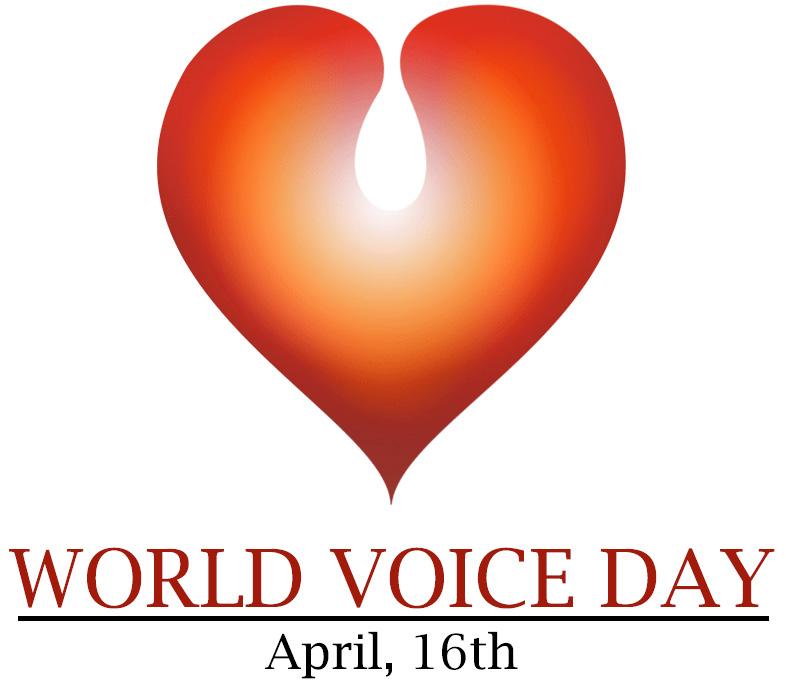
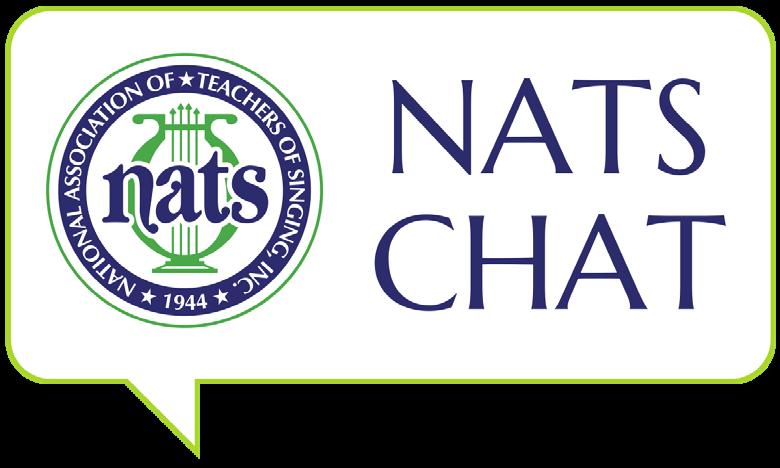

(6-7 P.M. CT; 5-6 P.M. MT; 4-5 P.M. PT)
*Unless otherwise noted
NATS Chat invites guests to discuss various topics in an online webinar. Sessions are often held the second Sunday of each month of the academic year. The host and coordinator for NATS Chat is Kari Ragan. The 2024/25 NATS Chat season is generously sponsored by Inside View Press
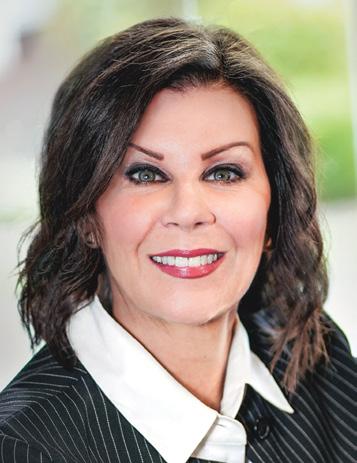
Fear No Sound: Teaching Rough Vocal Effects in Popular Music
Featuring May Oskan
Co-hosts: Blake Cline and Kari Ragan
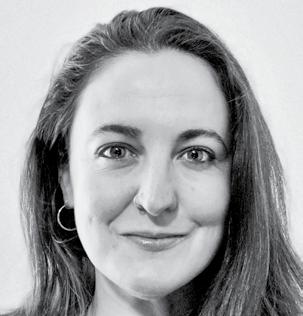

Rough or extreme vocal effects are commonly used in rock, blues, soul, and metal music. Recent research suggests that, with awareness and specific training, these sounds can be produced in a health protective way. This NATS chat will explore a functional approach to teaching rough vocal effects, and the challenges of developing evidence-informed teaching models for under-researched vocal styles. Guest May Oskan will share video clips of her work with students for demonstration and discussion.
Neurodiversity Affirming Voice Training
Featuring Alex Schenck, MS, CCC-SLP (she/her) and Ruchi Kapila, M.S., CCC-SLP (they/she)
Host: Kari Ragan (she/her)
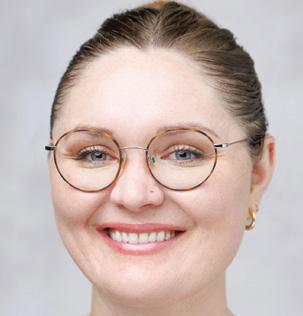
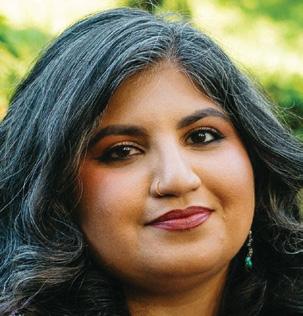
The neurodiversity movement promotes the idea that all brains work in different ways and that typical is not better. Neurodivergent brains happen to differ from societal standards. In singers, such differences may contribute to valuable artistic strengths and perspectives. However, standard practices in voice training were not generally developed with neurodivergent singers in mind and may not meet their needs. With guests Alex Schenck and Ruchi Kapila, this NATS Chat will explore neurodivergent perspectives relating to performing voice and the application of neurodiversity affirming principles to voice training.

Register and view schedule at NATS.org. Watch past chats on the @OfficialNATS YouTube channel.
Thank you for transforming lives through the power of singing!
Dear colleagues,
NATS 80th year, 2024, was a time of impactful philanthropic campaigns which supported transformative initiatives such as the NATS Intern Program and National Mentoring Collaborative, student performance opportunities and new awards funded at the NATS National Student Auditions, and the launch of NATS Annual Fund, Circle of Friends, which serves NATS most critical needs! 2024 also brought NATS first-ever online crowdfunding campaign for our annual Lift
■ Benefactor - $5,000+
Daryl Ragan
Julie and Josh Krugman
Kari Ragan
Karen A. Brunssen
Kenneth Corday
Linda J. Snyder
Lori L. Laitman
■ Investor - $2,500 - $4,999
Casey L. Carter
Daniel Johnson-Wilmot
Emily Slade Meyer
Randolph Edwards
William Vessels Estate
■ Patron - $1,500 - $2,499
Allen C. Henderson
C. Earl Coleman Jr.
Diana G. Allan
Nicholas and Mandy K. Perna
Richard Sjoerdsma
■ Leader - $1,000 - $1,499
Barbara Hill Moore
Carole C. Blankenship
Cynthia Stiehl
Frank Ragsdale
Hal Leonard Inc.
Jolie Stratton
Kurt Alakulppi
Sondra Ann Bennett
Your Voices Day of Giving. Thank YOU to our members, families, friends, and those in the music community at-large who donated their time, talents, and treasurers to ensure NATS growth and success as we continue to transform lives through the power of singing. I welcome the opportunity to collaborate with our members on creative and engaging campaigns as we set fundraising goals in 2025!
Happy Singing, Jen Jimenez, Development Director
West Texas District of NATS
■ Advocate - $500 - $999
André Chiang
Clifton Ware
Craig Tompkins
Darin Adams
ECS Publishing Group
Heidi Wylie
James Rodriguez
Janice Betts
Jeffrey Carter
Jennifer H. Erickson
John Frick
Julie A. Jones
Maria Bahas Lagios
Martha Coffin Evans
Michelle Allen McIntire
Minkyung Lee
Natalie Arduino
Norman Spivey
Oklahoma Chapter of NATS
Panhandle Chapter of NATS
Randall Umstead
Robert Wells
Sarah Holman
Seiko Igarashi
Susan Bransford
Tami Tibbetts-Taylor
Theresa Brancaccio Hansen
Timothy Schmidt
Todd Queen
■ Partner - $250 - $499
Aaron Hufty
Alexis B. Davis-Hazell
Anh Chinn
Brian Leeper
Crystal Rogers
Cynthia Vaughn
Dana Lentini
Daniel Hunter-Holly
David Weiller
Dean Gesme
Deborah Baxter
Diane Aguirre
Debra Jean Darnell
Elizabeth R. Daniels
Erie Mills
George Shirley
Georgia Chapter of NATS
Ho Eui
Holly Bewlay
Ian Howell
J. Robert Adams
Jane Randolph
Janet Day
Janet K Rabe-Meyer
Janet Reese-Goodson
Janice Beavers
Jeanne Marie Ford
Jen Gursky Jimenez
Joanne and Ken Bozeman
John David De Haan
John P. Nix
Jonathan Aur
Kelly M. Balmaceda
Kenneth Bozeman
Kurt Erickson
Leslee O’Kelly
Lisa S. Popeil
Lori McCann
Lorna E. Macdonald
Maria Hannigan
Meghan Raney
Pat Flynn
Patrice Michaels
Patricia S. Weis
Paulo Aur
Rachel Border
Rebecca Brou
Rebecca Coberly
Robert Bastian
Superior Concrete & Supply Inc.
Terry L. Noveroske
Texas Presbyterian Foundation
Torin Wesley Chiles
Victoria Holland
■ Supporter - $100 - $249
Aaron Johnson
Alisa S. Belflower
Alison J. Feldt
Amy Jarman
Angela Docenko
Angela McGann
Angela Tessinari
Anne Wick
Arlene Graham Sparks
Ayumi Nakamae
Bailey Romano
Barbara Dorner
Barbara Stock
Blythe Quinlan
Bob Bryan
Bradley Sowell
Brandon Marcus
Brent Richardson
Brian Dodd
Bronwen Forbay
Bryan Baker
Carol Ann Modesitt
Carol Loverde
Catherine Hutchison
Charles Higgins
Christin Cornell
Christine Seitz
Christine Thomas-O’Meally
Claudia Kennedy
Connie Hastings
Constance Fee
Crystal Jarrell Johnson
Cynthia Lawrence-Calkins
Danling Yang
David Rigsby
David Tucker
Deborah Ann Dalton
Deborah Ann Thurlow
Diane Foust
Donna Schaffer
Melinda A. Brou
Elizabeth A. Lampright
Elizabeth Johnson Knight
Eve-Anne Wilkes
Flo St. Jean
Gary L. Mabry
Geoffrey Friedley
George Roberts
Gerald Steichen
Glendower Jones
Halley Pearlstein
Heidi Nickerson
Helen E. Ceci
Holly Boaz
Ingrid D. Mueller
Ivalah Allen
Jan Eric Douglas
Jeff Williams
Jeffrey A. Snider
Jena Iverson
Jill Terhaar Lewis
Joan Jurenas
Joanne Mouradjian
John W. Wright
Jordan Brown
Jordyn Day Palmer
Joseph Harris
Judy Ann Curtis
Juliana Hall
Kate Egan
Kathleen A. Henkel
Kathleen Clare Ludowise
Kathleen Martin
Kathleen Roland-Silverstein
Kathryn Stimson
Katie Tupper
Kelley Aur
Kevin Wilson
Kim Schubert
Kimberly Gratland James
Kyley Beck
Laura Enslin
Liliana Guerrero
Linda Anne Poetschke
Linda Cowan
Lisa Cosens Brillon
Lorraine H. Robinson
Louise Toppin
Lynn Helding
Marci R. Ziegler
Marci Rosenberg
Marjorie B. Stephens
Martha Randall
Mary Ellen Schauber
Matthew Ashford
Maureen Charles
Michael Fiamingo
Nancy Jantsch
Nathan Taylor
Nedra Gaskill
Nicholas Shaneyfelt
Pamela A. Whitaker
Pamela J. Hinchman
Pamela Wiseman
Patrice Pastore
Patricia Callaway
Patricia Dulka
Patricia Miller
Paul and Troy Patinka
Peggy Bock
Rebecca E. Pieper
Rebecca Salter
Roma Prindle
Ryan Quan
Sally Thomas
Sarah Wilson MacMillan
Monaco
Selma Greer
Sharon Kiefer
Shaughnessy Family
Shelley Auer Schneider
Sonia Blangiardo
Sonja Hanson
Stephen Sudik
Susan Waddell
Teresa Gray
Timothy Keller
Tommy and Aileen Cole
Valerie Barton
Vielka Kelly-Weiss
Wendy Anne Mullen
■ Contributor - $5 - $99
Aaron Lichtner
Abbey Carlson
Alice C.
Alice Kawan
Alicia Reilly
Alison J. Watson-Moodie
Alison Lee Freeman
Allison Gullidge
Alyssa Bennett
Alyssa Owens
Amy Shaughnessy
Andrea Jarman
Andrew Carr
Andrew Shepherd
Andrew Whaley
Andrew Whitfield
Angela Gilbert
Anita Baranowski
Ann Marie Daehn
Anna Bonham-White
Annelle Delfs
Anthony Williams
Antoinette Olivier
Antonio Iuvone
Anupa Paul
April Pellegrini
Aram Barsamian
Arthur Wilson
IMPORTANT • ENDURING


NATS has been an important part of my life. I’m happy to know my gift will help transform lives for years to come.
— DIANA ALLAN, FOUNDING ENCORE! SOCIETY MEMBER
You don’t have to be wealthy to leave a gift that will resound for generations.
Have you considered leaving a gift to NATS in your will or trust?
For many individuals, the bulk of our wealth is held in our estate – our retirement plan, property, life insurance, etc. This means that legacy giving might be the most impactful gift we will ever make.
How would you impact NATS? You could create a named scholarship for future NATS students or name a NATSAA or NMTC prize. You could advance the careers of young vocal teachers. You might provide permanent funding for the program you value most. Making a legacy gift to NATS advances our art in a lasting way.
A legacy gift to NATS makes you a member of the Encore! Society, created to recognize donors who have made a longterm commitment to NATS’ mission through estate gifts.
Encore! Society member benefits:
• Knowing your values will be carried forward by NATS
• Name recognition, with permission, in the NATS annual reports and on the NATS website
• The opportunity to name a scholarship or prize
• Invitations to NATS President’s Reception at the National Conference
• Updates on NATS programs and activities
Changing lives through the power of singing through:
• Gifts In Your WILL OR TRUST
• A Gift of a LIFE INSURANCE POLICY
• Designate NATS as a beneficiary of BANK AND BROKERAGE ACCOUNTS
• LIFE INCOME PLANS
If you would like to discuss a charitable bequest, please contact NATS at 904-992-9101 or email donations@nats.org.
Beatrice Bergér Gee
Becky Walker
Beth Kirkpatrick
Bethany and Gary Hirota-Mabry
Bianca Jackson
Blas Canedo
Bonnie Draina
Bonnie Salewski
Bonnie Wood
Brandon Luvender
Braxton Carr
Brenda Williams
Brianna Russell
Brittani Farrell
Brittnee Simone
Bruno Gerardo
Bryan Barlow
Caitlin Bolden
Canedo Blas
Carl I. Bourhenne
Carla LeFevre
Caroline Bradley Smith
Carrie L. Lemke
Catherine McDaniel
Cecilia Castillo
Central Florida Chapter of NATS
Charles Dugan
Cheryl Keller Brooks
Chris Richie
Christian L. Morren
Christian Wood
Christie Frazer
Christina DeMaio
Christina R. Haldane
Christina Schiffer
Claire Vangelisti
Clara Peters
Connie Luck
Corbin Abernathy
Corey Anderson
Courtenay Harter
Craig Price
Cristina Flores
Cynthia F. Linton
Cynthia A. Longoria
Cynthia Joy Schwarz
Cynthia Schwenkel
Cynthia Tracy
Dale O. Throness
Daniel Frankel
David Christopher
David Diskin
David Talby
Dawn W. Neely
Deanna Joy Clee
Debbie Smith
Deborah Rentz-Moore
Deborah Williams
Debra Roat
Deirdre Welborn Francis
Deluca Family
Dian L. Lawler-Johnson
Donald Rasely
Dorcas Smith
Douglas Carpenter
Randall Black
Eden Badgett
Eduard Dan Franti
Edward Tracy
Eleanor Leak
Elena Jeanne Batman
Elise Auerbach
Elizabeth Eschen Cacciola
Ellie Seligmann
Emily Boyce
Emily Denbleyker
Emily G. Neuhauser
Emily Lunde
Emy Igot
Eric Posada
Erica Glenn
Erika Chang
Erin Freeman
Esther Gurrion
Esther Ritrovato
Eva Germino
Evelyn Camburn
Evelyn Harris
Evelyn Levine
Felicia Betts
Frances N. Brockington
Francesca Stivella Melendez
Frank and Jordan Engel
Gaye Klopack
Gayla Blaisdell
Georgeanne Yehling
Glen and Sandy Wibracht
Gordon Rose
Gregory Brookes
Gretchen d’Armand
Hallie Coppedge Hogan
Hannah Jhun
Heather Lowe
Indra Thomas
Jaclyn Michelle Surso
James Doing
Jamie Beaner
Jamie Reimer Seaman
Jana Silvestro
Janice Lawrence
Janine Dodd
Janine Magnin
Jennifer Conrad-Proulx
Jennifer Duggins
Jennifer L. Marcellana
Jennifer Sharp
Jenny Davis
Jeremy Brian Blackwood
Jessica Chin
Jessica Posada
Jiyeon Hwang
Joan Gursky
Joan Lorna Boewe
Joe Gursky
Joel Alexander
Joel New
John Bass
Jolene Sodano
Jonathan Amirkhan
Joseph Jimenez
Joshua May
Josmery Mulvahill
Joyce May Henery
Judith B. Boyter
Judy Rodman
Julie Dove
Justin Moniz
Karen E. Smith
Kateri Gormley-Sackett
Kateryna Rohova
Katherine Baker
Katherine Boardman
Katherine Ciesinski
Katherine Johnston
Katherine Verdolini Abbott
Kathy Kessler Price
Kathy Paulsen
Kelley Ruth Hijleh
Kelly M. Holst
Kerry Anne Johnson
Kimberly Wolf
Krista Lawrence
Kristina Riegle
Lary D. Benson
Laura McLain
Laura Rushing-Raynes
Laurea McAllister
Laurena Mitzi Gatlin
Laurissa Backlin
Leslie Dutton
Leslie F. Mangrum
Linda Peting
Lisa Kroeker
Lisa Williamson
Lorraine Beadell
Lorraine Reinhardt
Lynn Martindale
Madison Leonard
Maggie Cramer
Mardi Byers
Margaret McNulty
Margaret Spool
Margery S. McCrum
Maria Teresa Magisano
Marian Hoffman
Marian Johnson
Marika Kyriakos
Marilyn S. Taylor
Marita Stryker
Marla S. Jones
Marti B. Schert
Marti Brende
Mary Ann Sills
Mary Briggs
Mary Cherian
Mary Hagopian
Mary Saunders Barton
Mary Stucky
Melanie B. Williams
Melissa Treinkman
Melody J. Johnson
Melody Rich
Merced Stratton
Meryl Mantione
Mia Spencer
Micah Igot
Michael Serio
Michael T. Hix
Michelle Ingle
Mimi Adams
Mimmi Fulmer
Monica Ariane WilliamsMcCullough
Mutsumi Moteki
Myra Vassian
Nancy Gustafson
Natalie Dupre
Nayeli Palacios
Neil Beatty
Neil Frazer
Nick Ryan
Nicole Williams
Osceola A. Davis-Smith
Pamela Church
Pamela Knerr
Pamela Sills
Pamela Terry
Paris Dupré
Pat Fey
Patricia C. Applegate
Patricia Crump
Patricia Johnson
Patricia Yuíza Toledo-Seiser
Paul and Jo Abbott
Paul Henry Houghtaling
Paul Rardin
Peter Thoresen
Petra Lang
Polly Baldridge
Rachel Cooper Barnard
Rachel Kwok
Rachel Wood
Rebecca Greer
Rebecca St Goar
Reginald L. Pittman
Richard Lissemore
Richard Pearson
Rita Larkin
Robert and Donna Yures
Robert Best
Robert Gillmer
Robert Lewis
Robert Nowlin
Robyn Esposito
Ronald Land
Rosemarie Dhavale
Ryu-Kyung Kim
Sabu Wong
Sal and Natasha Sanchez
Sam Hartley
Saori Collins
Sarah Hebert
Thomas Abbott
Miriam Abramowitsch
Mildred Allen
Silvia Bagley
Corre Berry Brusse
John Bloom
Adele Borouchoff
Alton Bynum
Elsa Charlston
Donald Eugene Clark
Ethel Closson Smith
Sarah Wallack
Sasha Divain
Scott & Liz Lampright
Seneida Tomasetti
Serena Hill Laroche
Sharon Appelman
Sharon Teets
Sharyn June Mapes
Shayna Isaacs
Shelby Vannordstrand
Shirley Umstead
Sondra Tucker
Sooah Park
Sovankonthea F. Mills
Stephanie Foley Davis
Stephen Ng
Susan Allen Nance
Susan E. Williams
Susan K. Wallin
Susan Lane Stokes
Susan Scull
Susan Twiehaus
Suzan Ben-Poorat
Sylvia Rivers
Tamika Whitehurst
Teri Hughes
Terria Williams
Theresa A. Lee-Whiting
Thomas Erlank
Tierany Lowell
Tierra Whetstone-Christian
Tiffany Baxter
Tim Hausmann
Tina Howe
Todd Caissie
Tony Deaton
Tracy Alpert
Victor Martinson
Victoria Garrett
Wayne J. Davis
Yanik Giroux
Yoko Shimazaki-Kilburn
Yoojin Muhn
Young Singers of Flint Hall Inc.
■ Sponsors
Appcompanist
Ast Publications, LLC
Mid-South Chapter of NATS
My Music Staff
Tennessee Chapter of NATS
The Royal Conservatory of Music
Vocalmist
September 2024 – February 2025
Ruth Cooper
Stephen Crawford
Richard Edwards
Joan Frey Boytim
Marjorie Gloyd
Mary Jane Goeke
Winifred Hartman
Robert Herman
James Hudson
Caroline Elizabeth Ireland
Caroline Kingston
Marion Miller
Mary Moore
Karen Rae Mord
Virginia B. Parrish
Dan Pressley
Laura Remsberg
Barbara Sable
Calliope Shenas
Gordon Smith
Harold Smith
Laurence Stith
Thomas S. Teague
Virginia Toenes
William F. Toole
Linda J. Tucker
Vasile Venettozzi
Robert Vernon
Kathryn Wasson
Marianne Weltmann
Shirley B. White


Members (included above) 1st